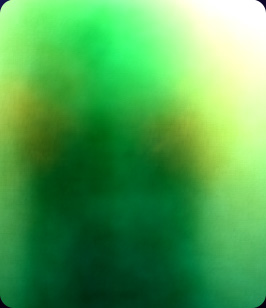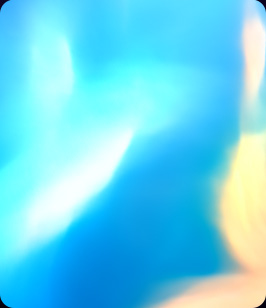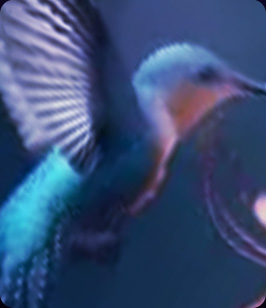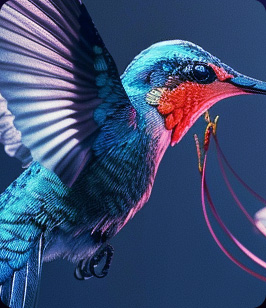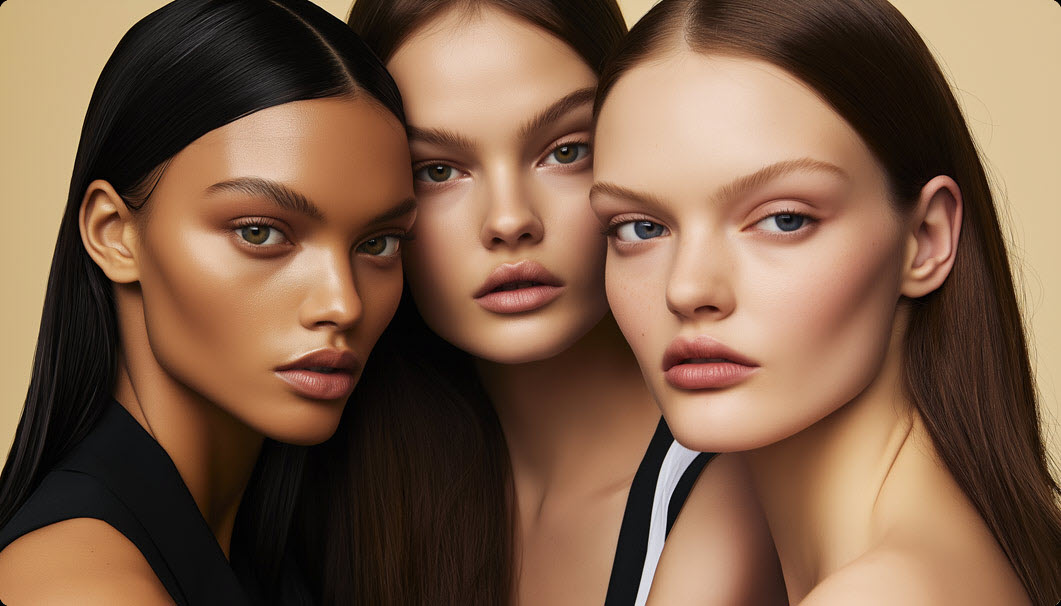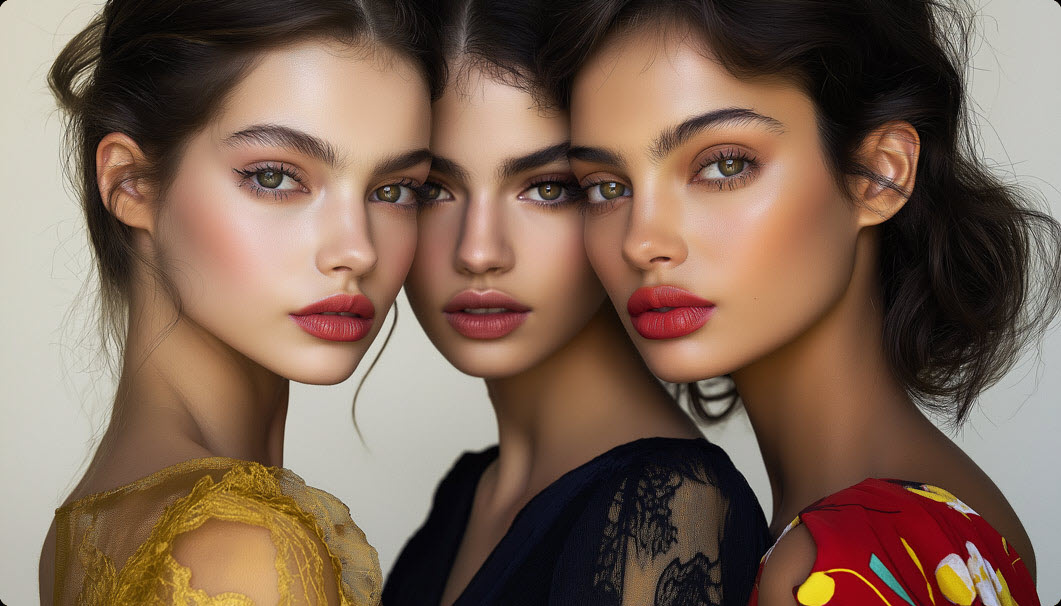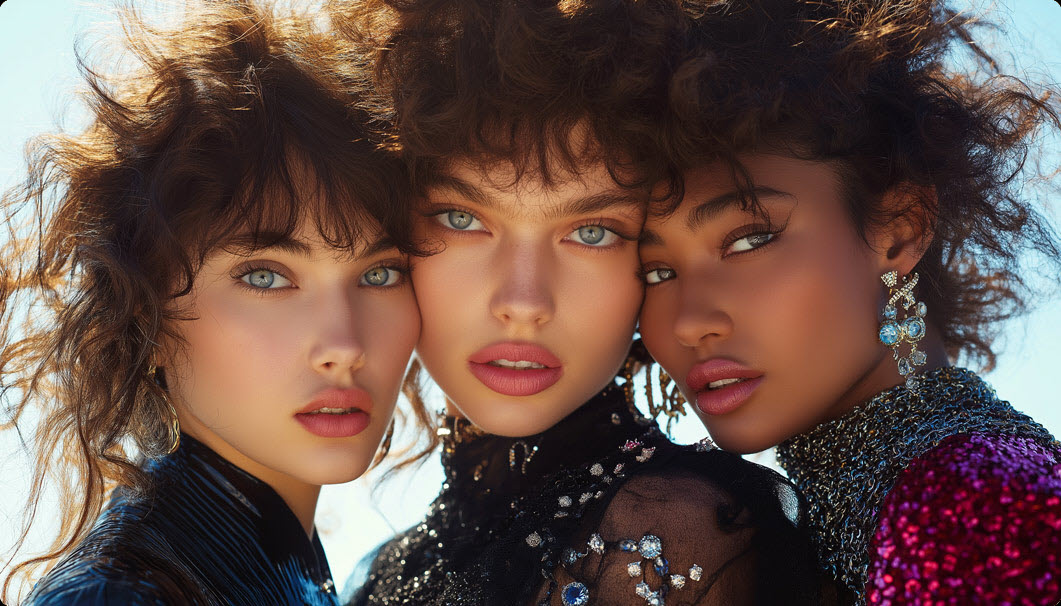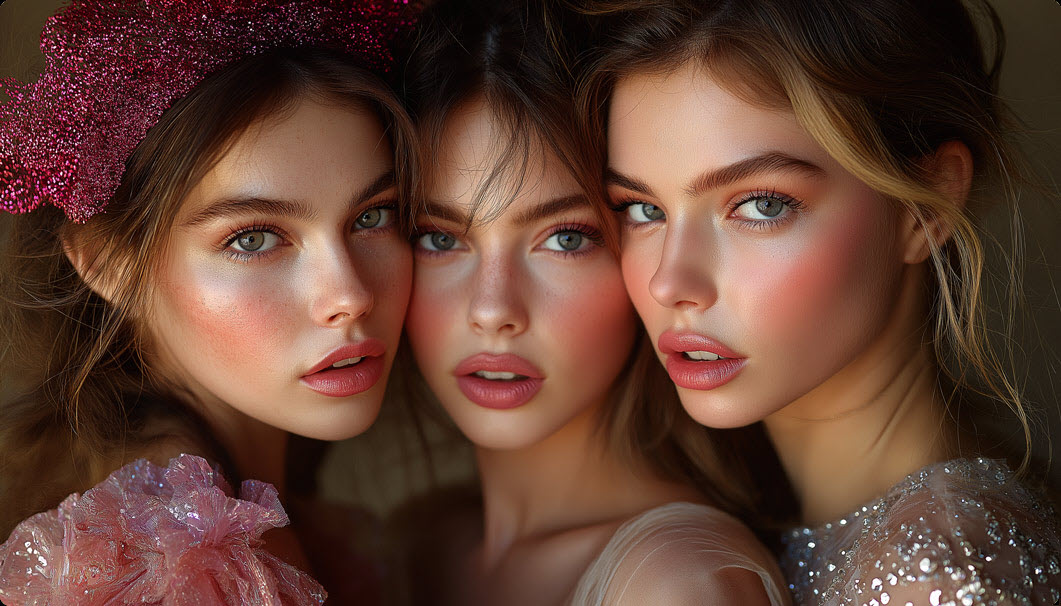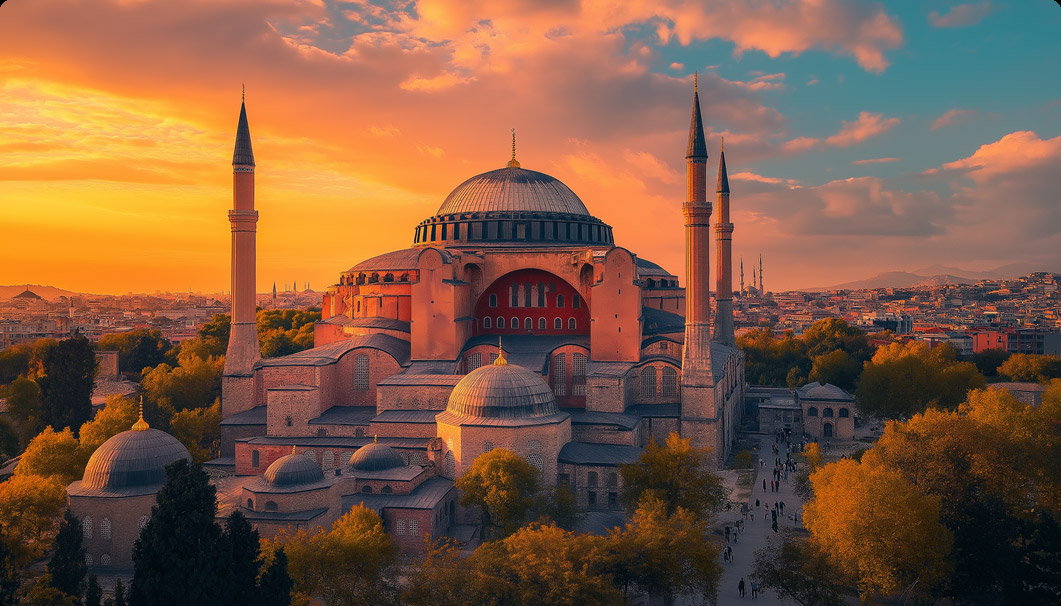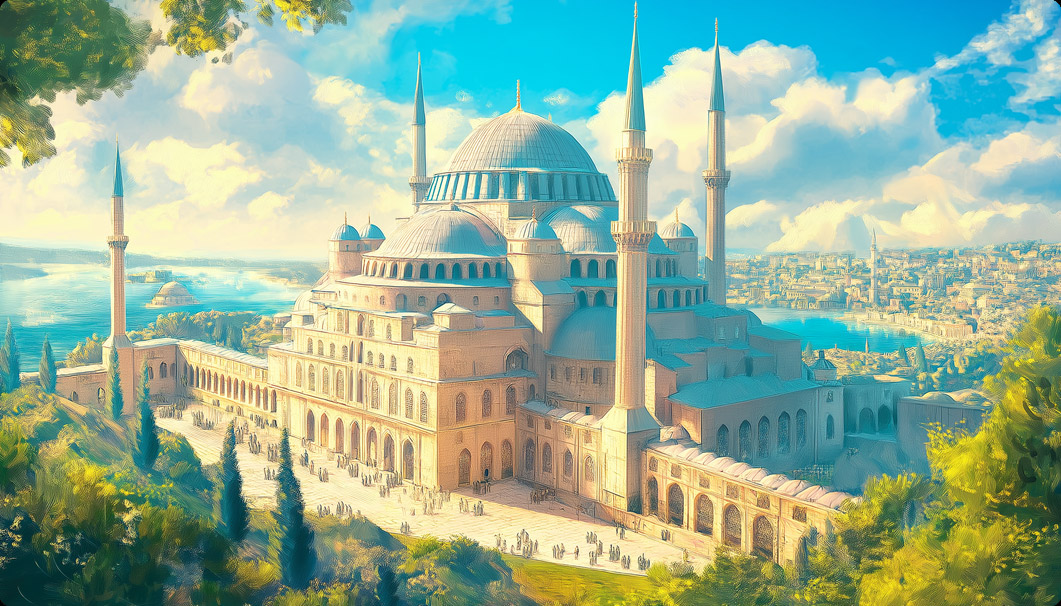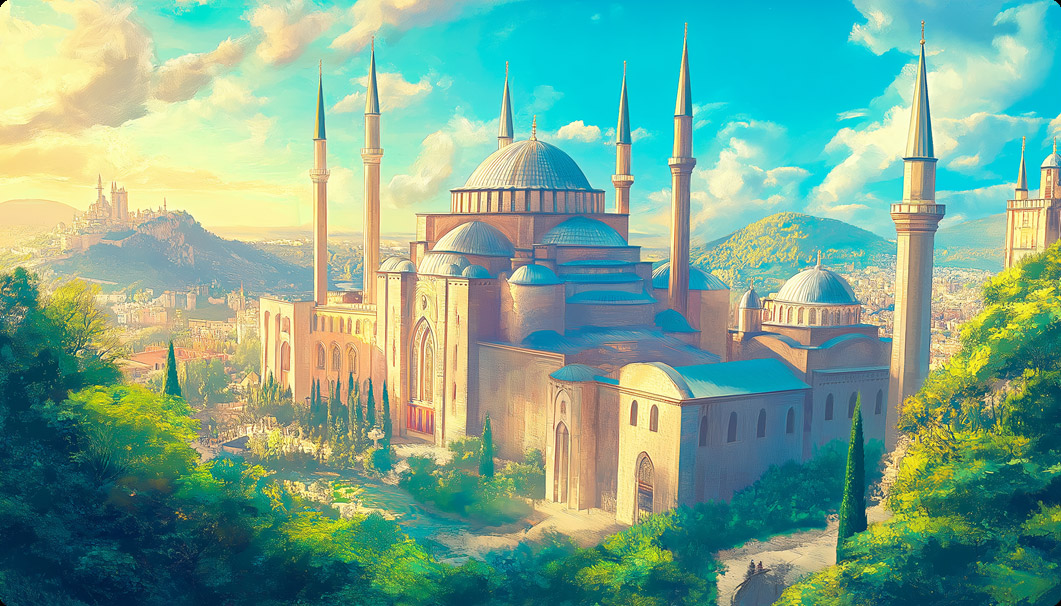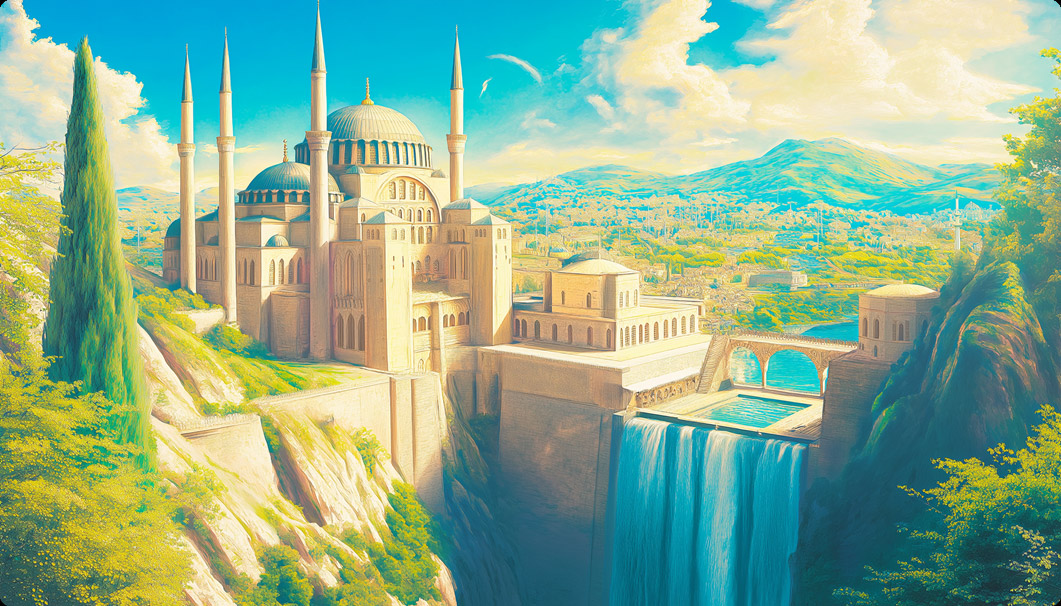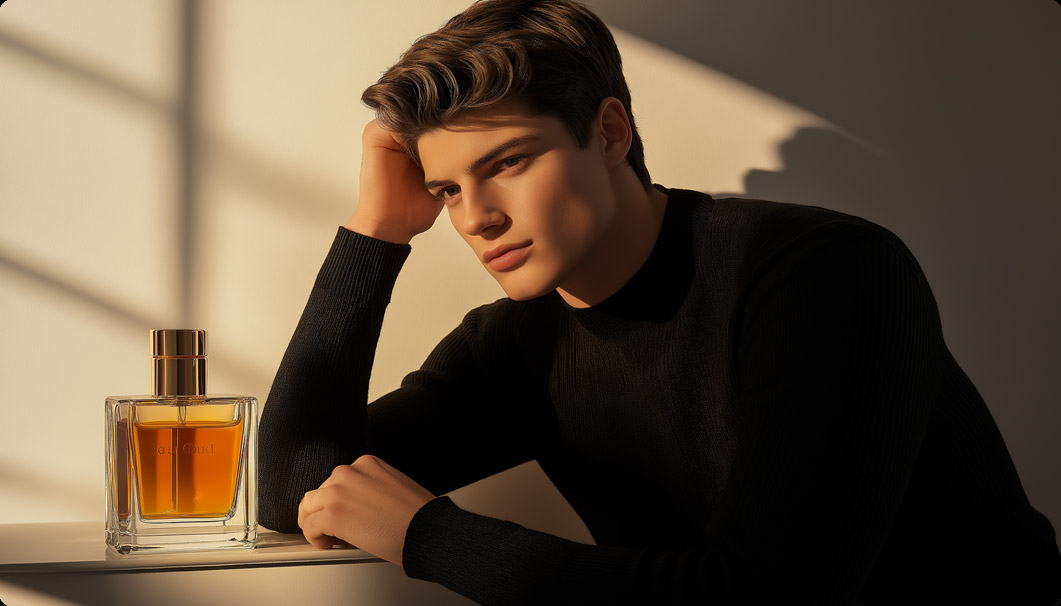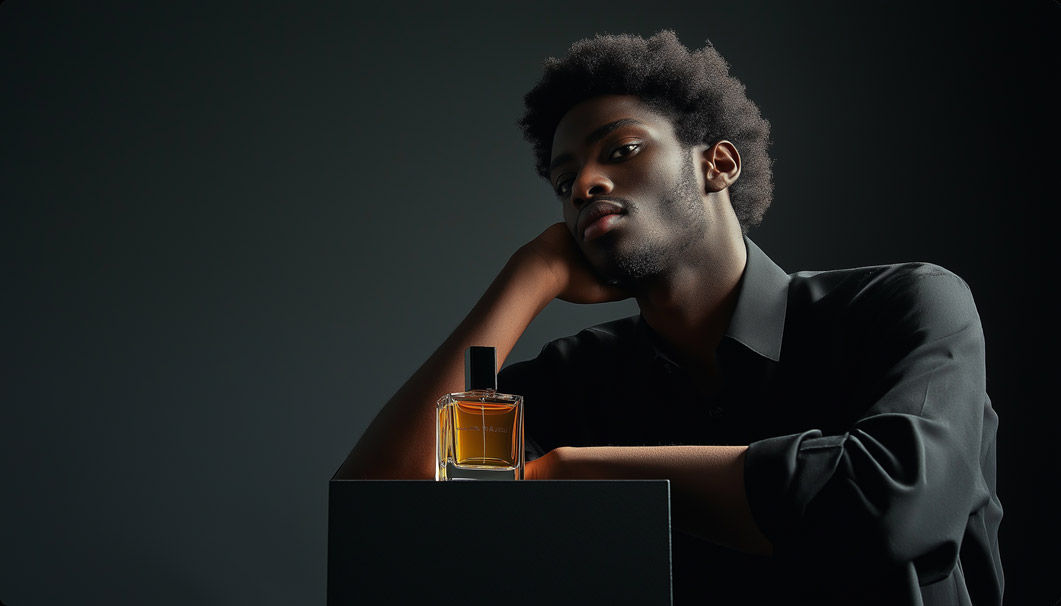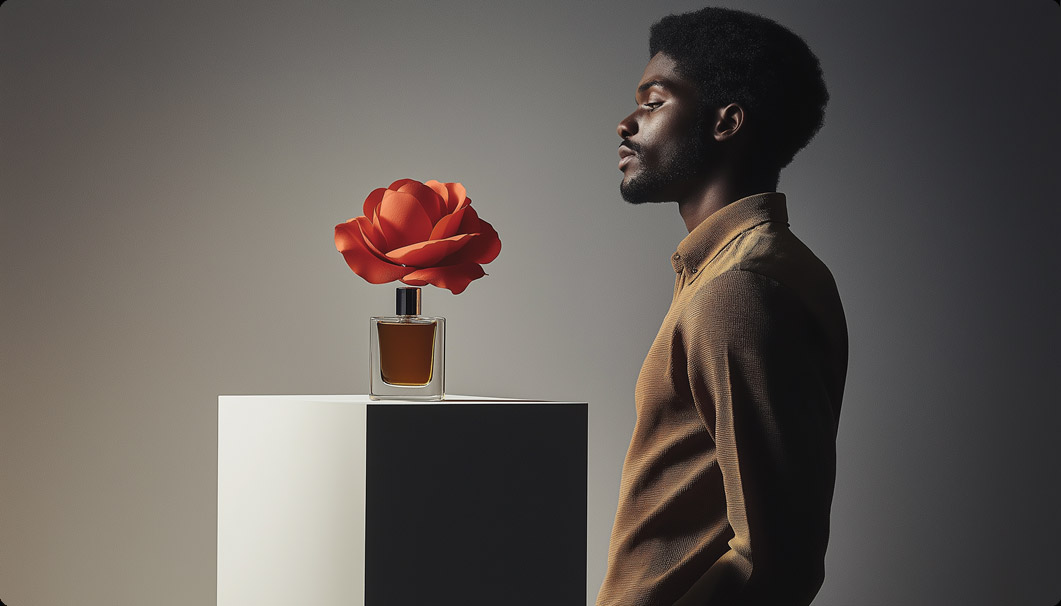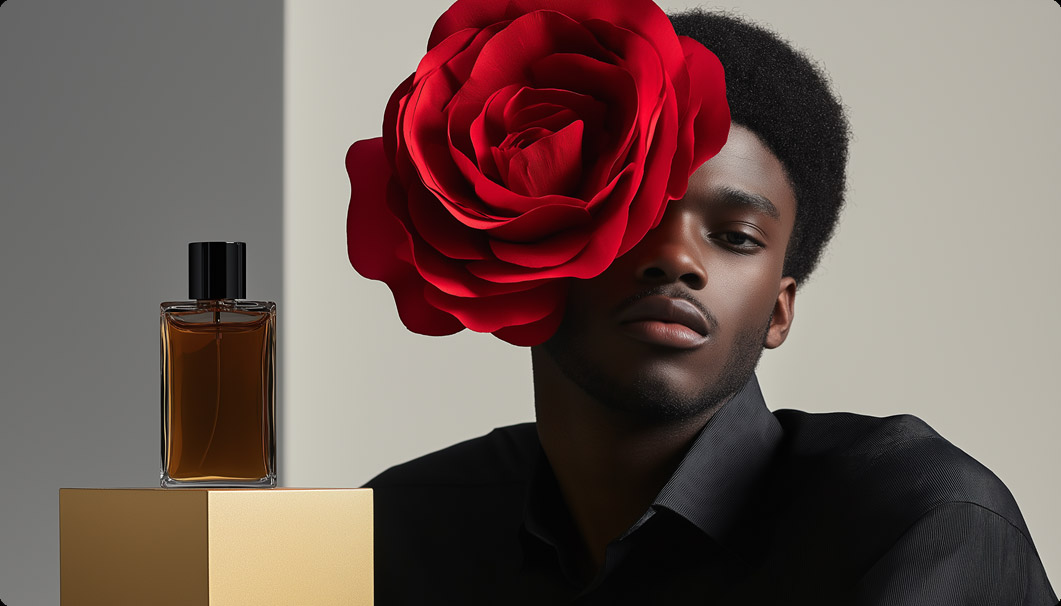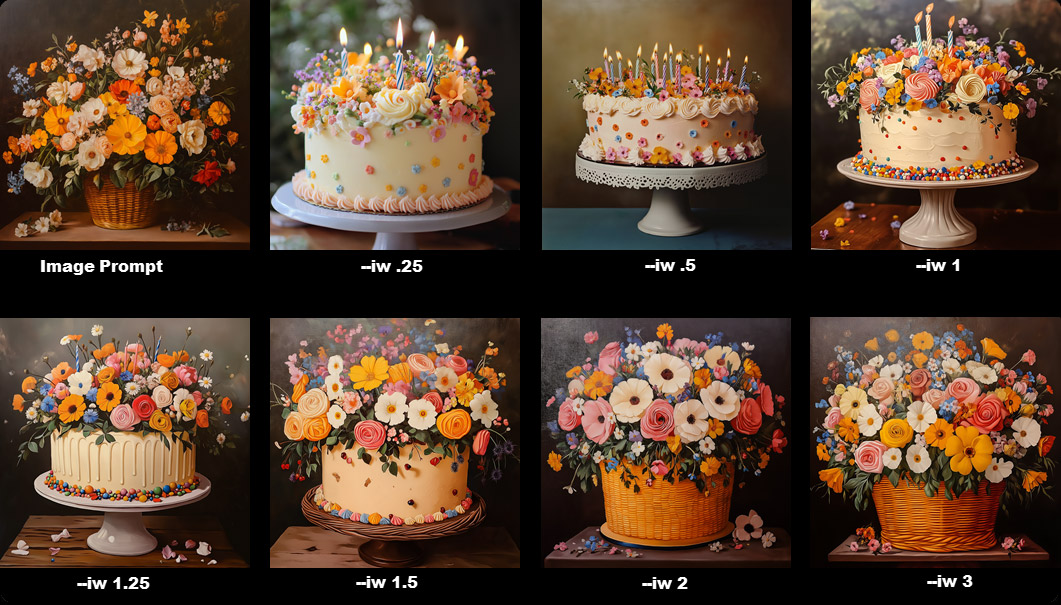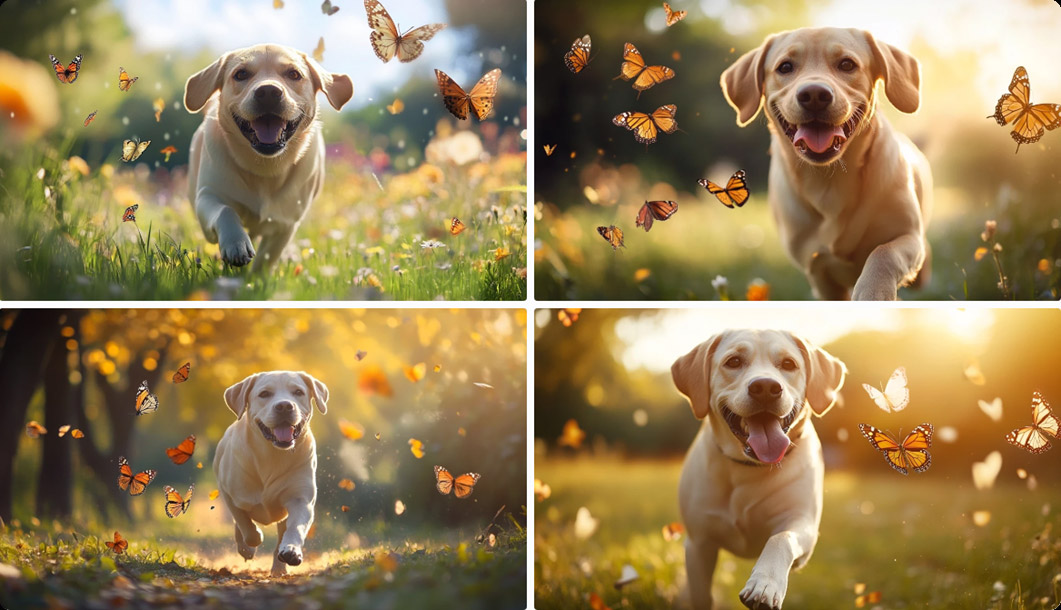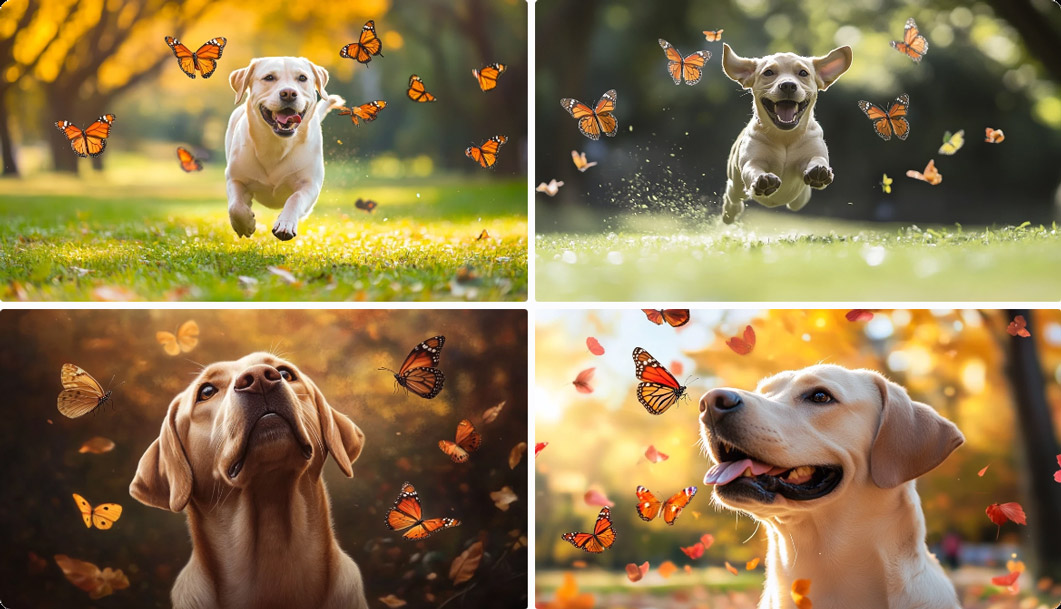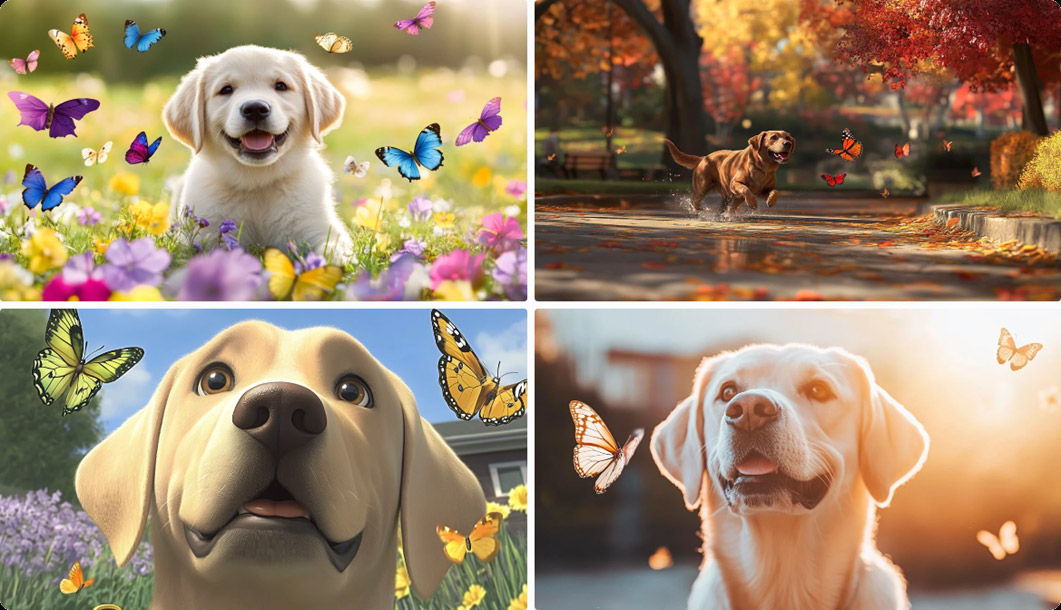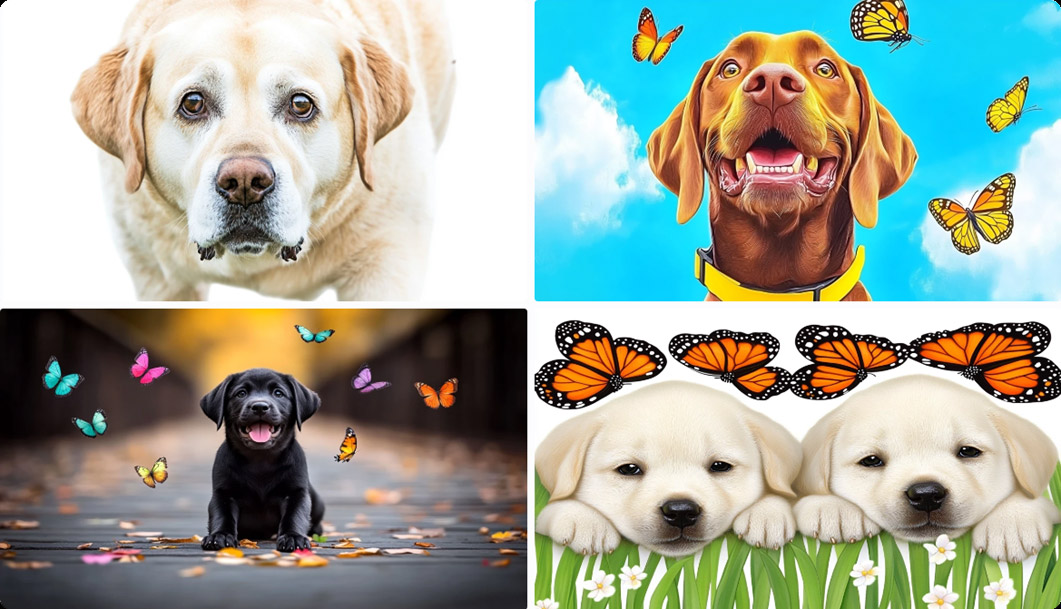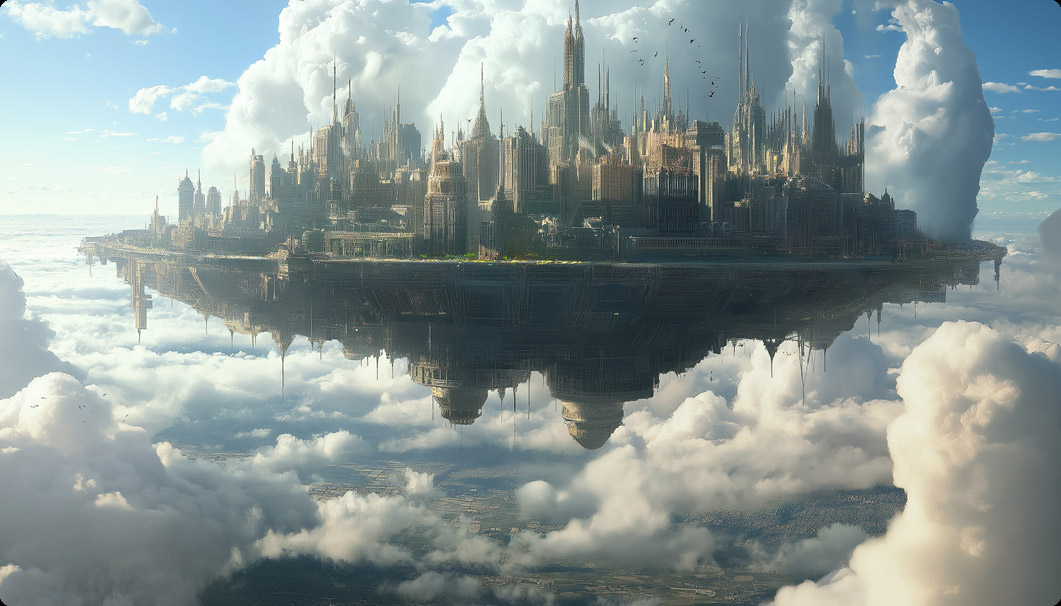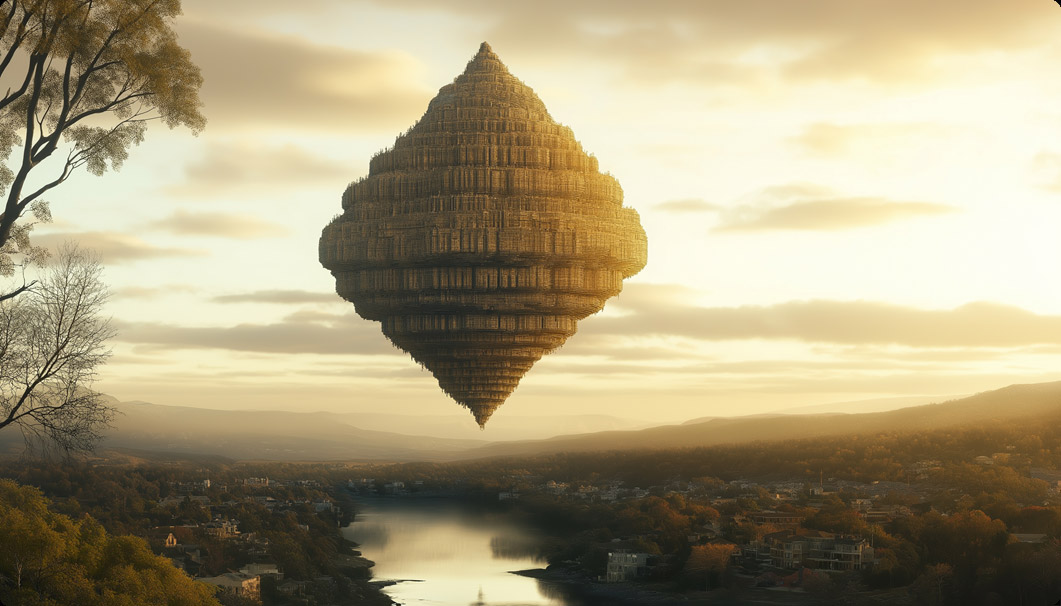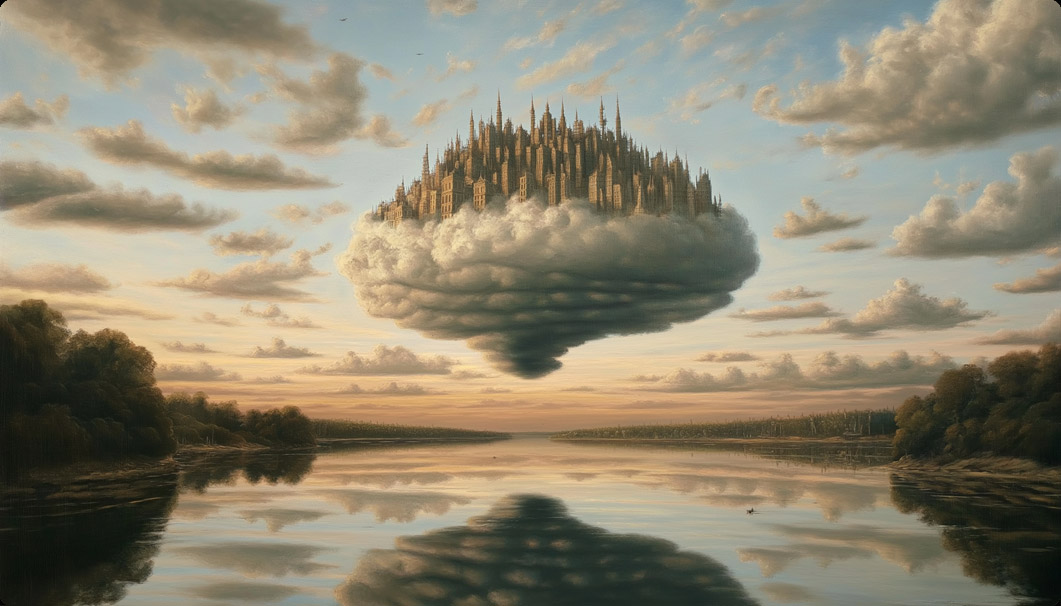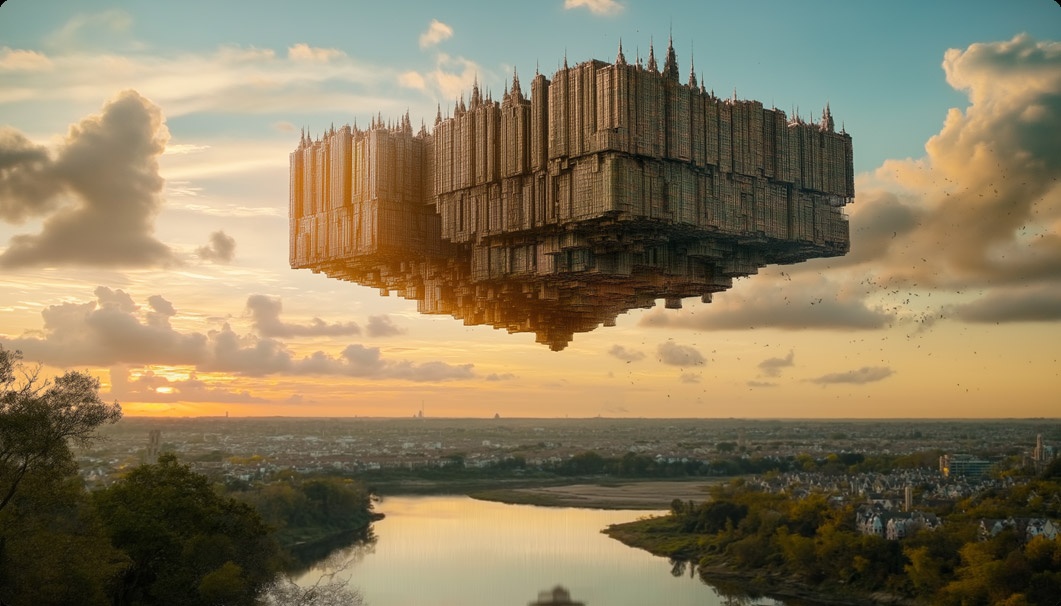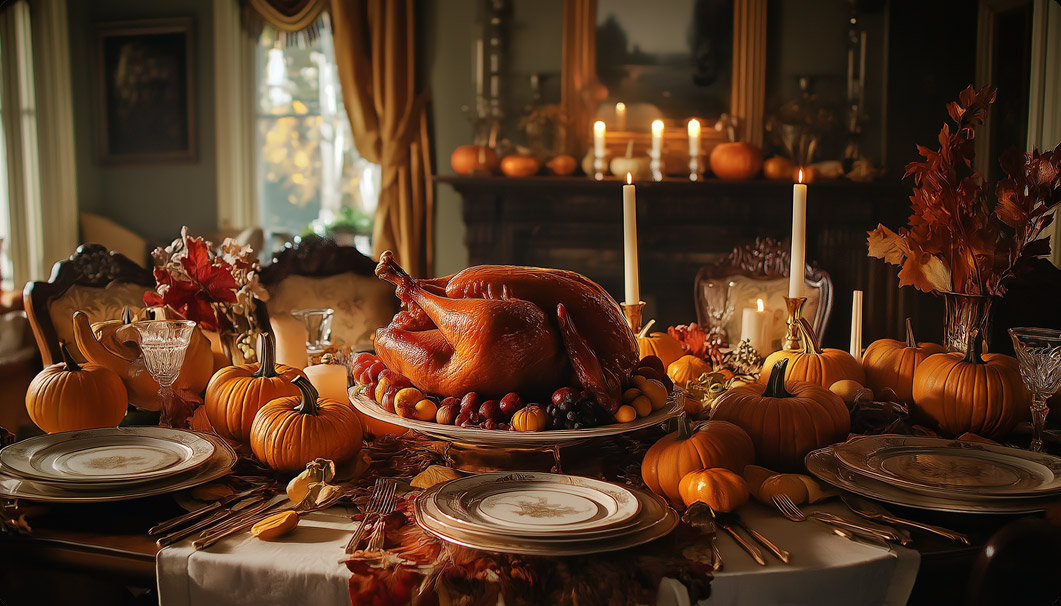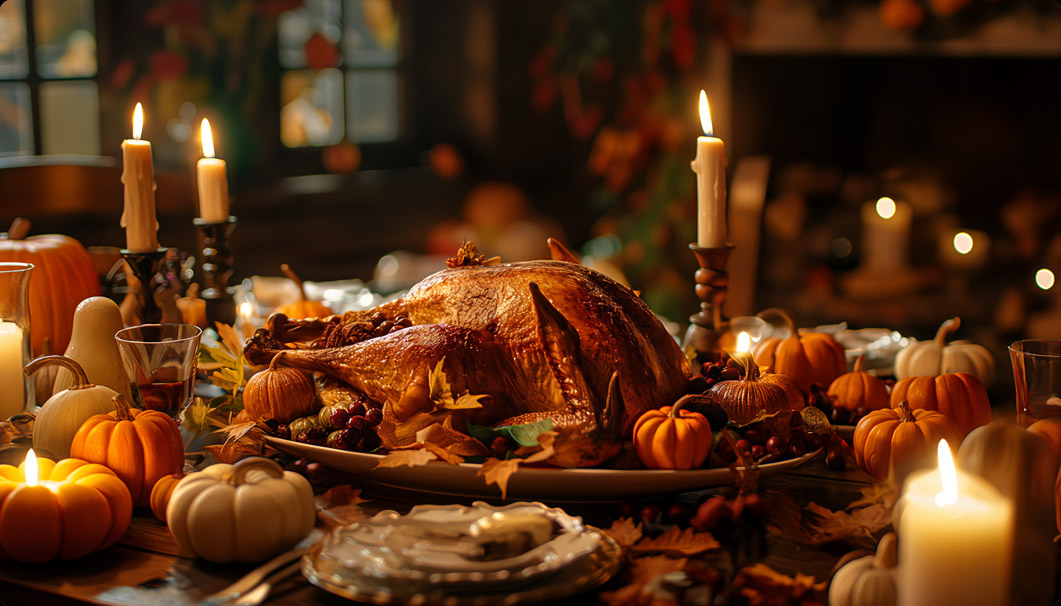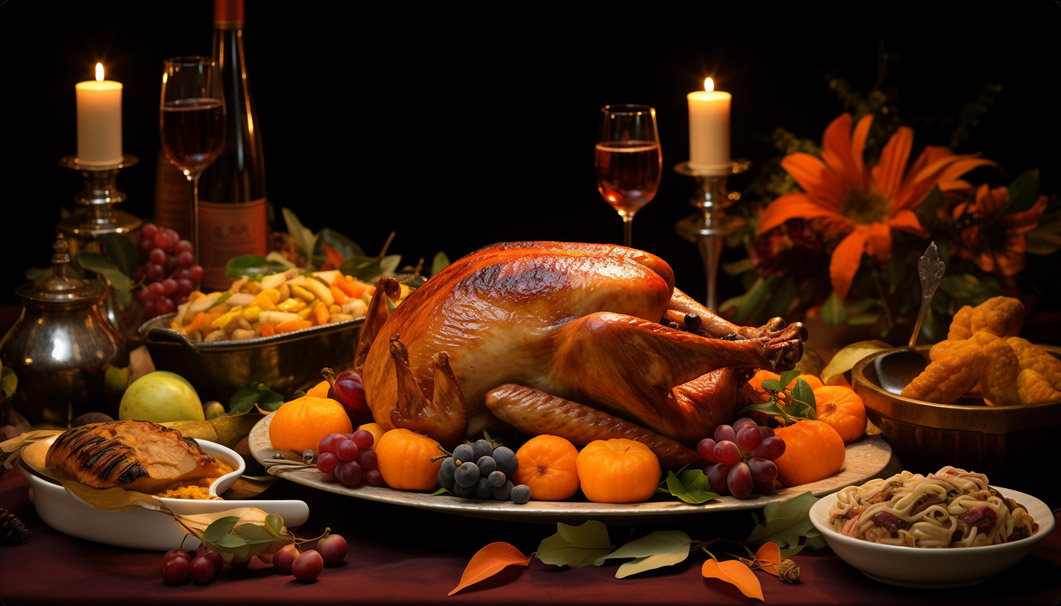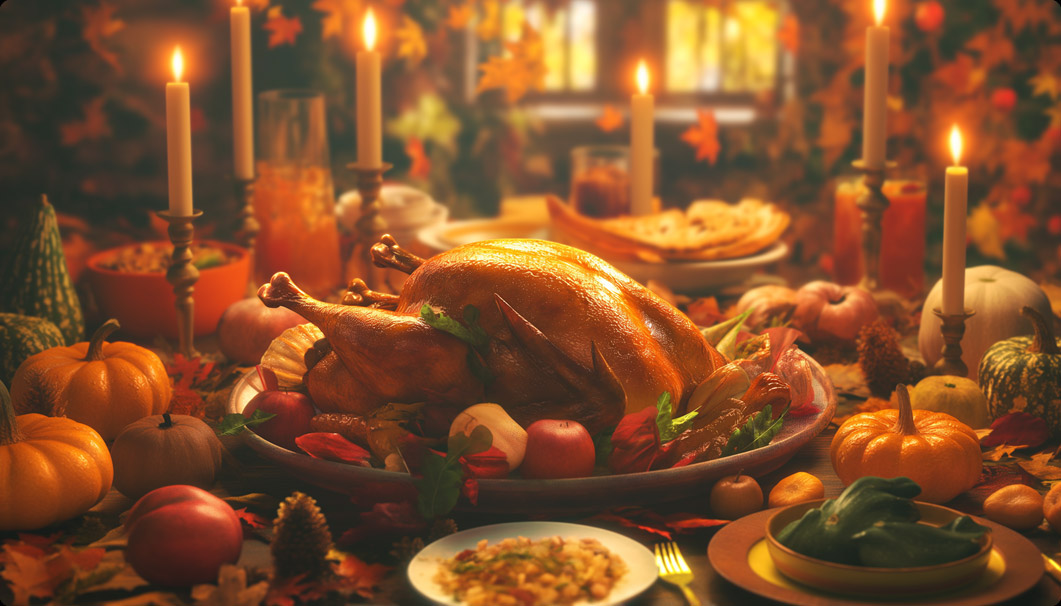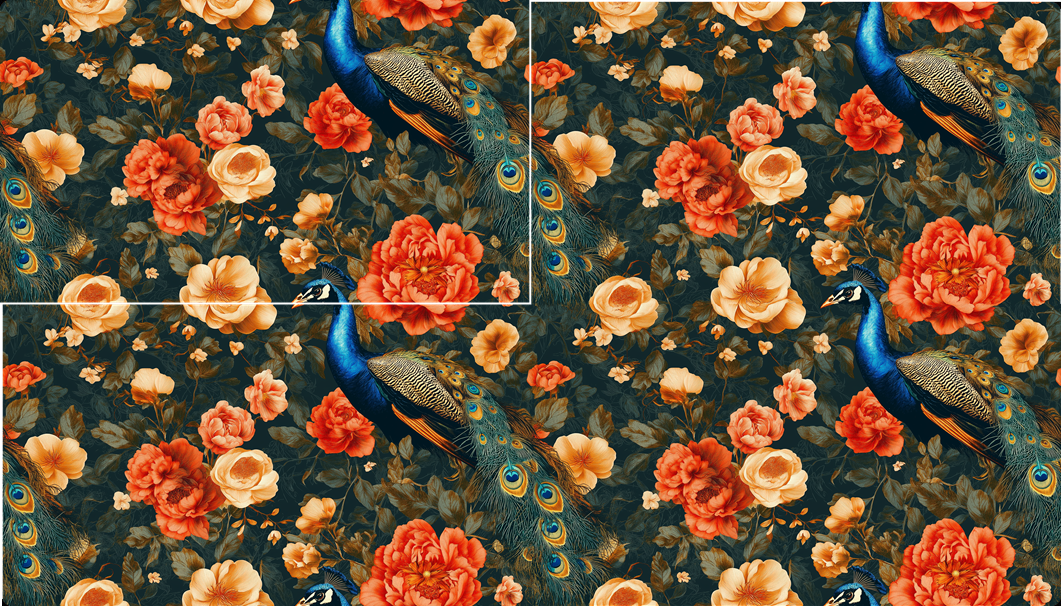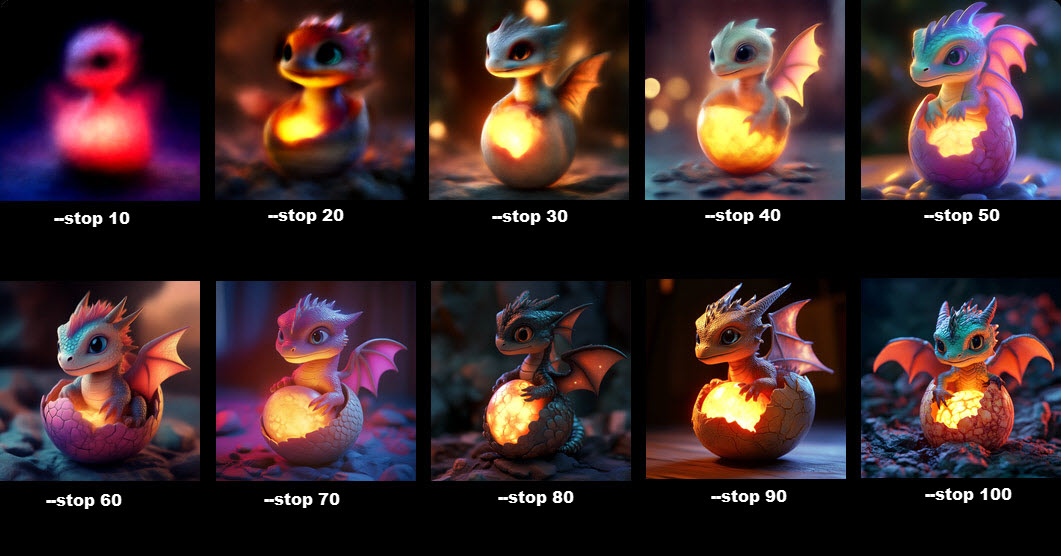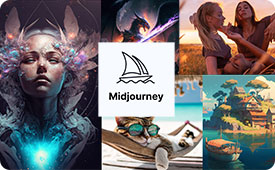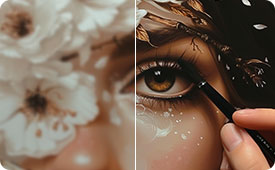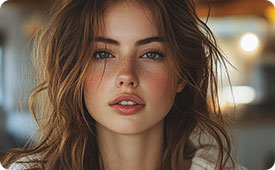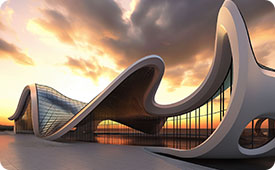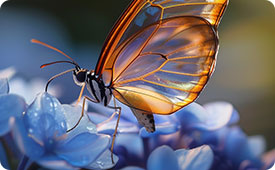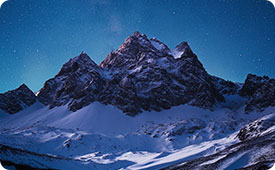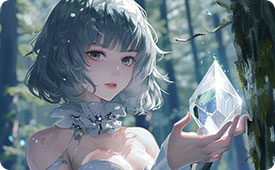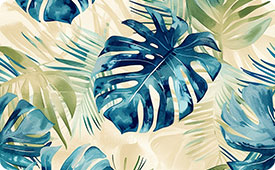Upscale Your Midjourney Images
Bigger and Clearer
Your Midjourney image is blurry or not big enough for print? Aiarty is your solution - an AI-powered image resolution upscaler and quality enhancer.
- Upscale images to 4K/8K/32K in batch. More details.
- Remove blur, noise, and pixelation. No CPU/RAM overloads.
Midjourney Basics: Generate Midjourney Images with Formulas
Midjourney has revolutionized the way we approach digital art, empowering users to generate stunning images with simple text prompts. While creativity is at the core of the process, understanding the underlying structure of prompts can significantly enhance your ability to control and refine your image outputs. Here, we'll delve into the world of Midjourney formulas, breaking down the essential components, understanding the diffusion generating process, and exploring high-quality image upscaling with Aiarty Image Enhancer to make your Midjourney creations more widely available.
- Structure a Midjourney Prompt
- Nail the Details of Prompt
- Midjourney Diffusion Process
- Upscale Midjourney Images

-
Image Prompts
Image URLs can be added to a prompt to influence the style and concept of the finished result. You can upload your own images or reference those created by others.
-
Text Prompts
The text description is what image you want to generate. Well-written prompts with clear and specific details will help generate stunning visuals that match your exact vision.
-
Parameters
Parameters change how an image generates. Parameters can change aspect ratios, models, upscalers. Parameters go at the end of the prompt. See more parameters >>
-
Subject
Identify the image's central focus: person or object. Detail its attributes, including appearance, demeanor, actions, attire, and character traits etc.
-
Background
Describing what the background scene is like, indoors or outdoors, urban or rural, futuristic or fantasy, specific scene or abstract concept, etc.
-
Style
Specify the artistic style you want the work to be in, choose a style movement, reference a cultural style, or draw inspiration from a particular artist.
-
More Types of Details
Add any other details you desired to your Midjourney image, from lighting to mood, art medium to color, composition to camera lens etc.
- Noise
- Generate sampling by denoising
- Data
Midjourney generate clear images through a diffusion process, where noise is progressively reduced step-by-step. Each step refines the image, bringing it closer to the desired outcome. This allows the model to learn complex patterns hidden within the data. By iterating on this process with high-quality data, Midjourney eventually grasps the underlying data distribution. This mastery enables it to transform random noise into any image imaginable.
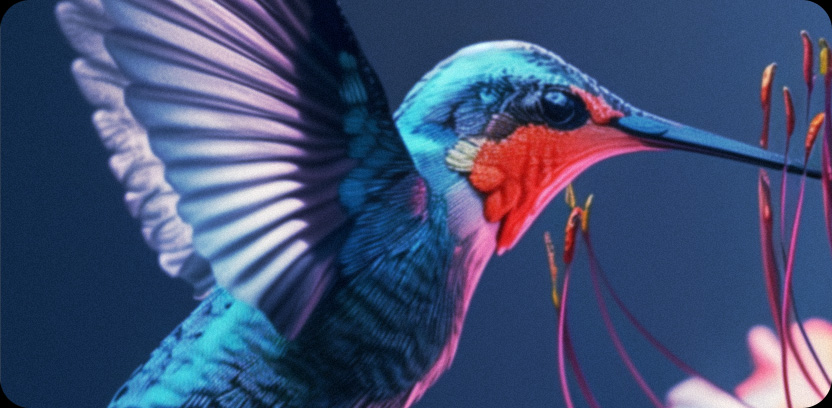
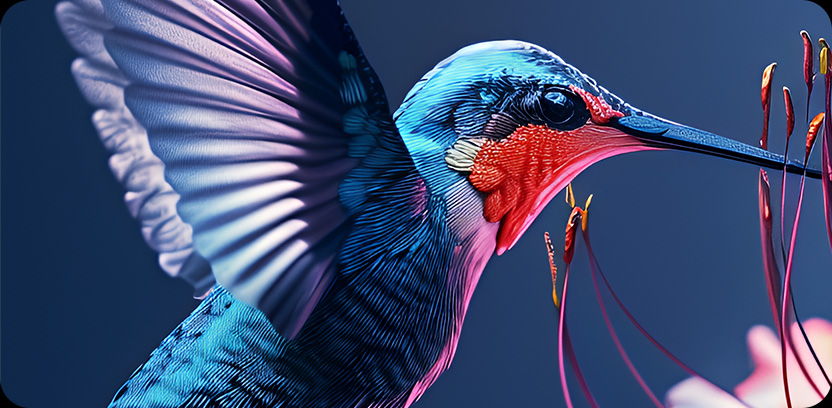
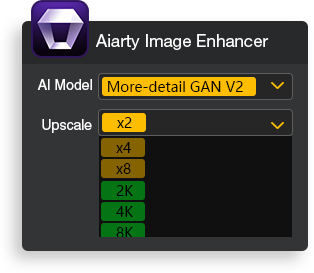
Take your Midjourney arts to the next level with Aiarty Image Enhancer. It magically upscales your AI art to high resolution and refines it with incredible detail and clarity, making it print-ready for vibrant posters, captivating wall decor, and high-quality apparel.
How Midjourney Generates Images by Adding Prompt Details Incrementally
In Midjourney, you can tell it exactly what you want in your picture with words. But there's a limit! If you give it too many details, Midjourney might get confused and not make the picture you imagined. We need to find the sweet spot: enough details for a great picture, but not so many that Midjourney gets overloaded. Let's start with a simple prompt, and gradually add new tokens to it, while keeping the seed, aspect ratio, style raw, stylize and v 6.1 parameters fixed for consistency.
-
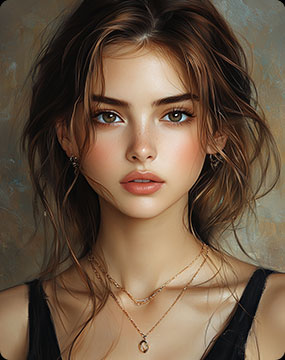 A cool girl with brown hair --ar 3:4 --seed 1632872213 --style raw --stylize 750 --v 6.1
A cool girl with brown hair --ar 3:4 --seed 1632872213 --style raw --stylize 750 --v 6.1 -
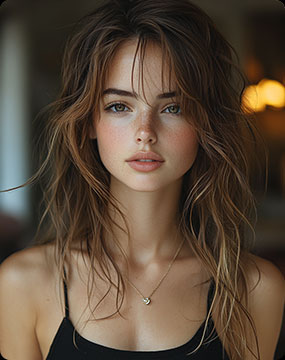 A cool girl with brown hair, indoors --ar 3:4 --seed 1632872213 --style raw --stylize 750 --v 6.1
A cool girl with brown hair, indoors --ar 3:4 --seed 1632872213 --style raw --stylize 750 --v 6.1 -
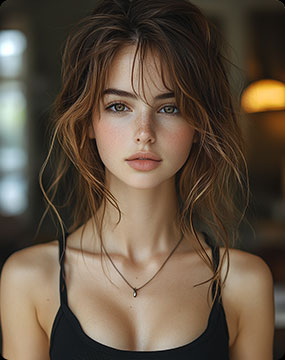 A cool girl with brown hair, indoors, busts view --ar 3:4 --seed 1632872213 --style raw --stylize 750 --v 6.1
A cool girl with brown hair, indoors, busts view --ar 3:4 --seed 1632872213 --style raw --stylize 750 --v 6.1 -
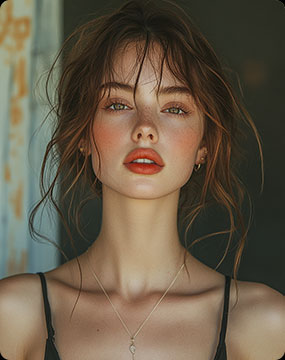 A cool girl with brown hair, indoors, busts view, studio light --ar 3:4 --seed 1632872213 --style raw --stylize 750 --v 6.1
A cool girl with brown hair, indoors, busts view, studio light --ar 3:4 --seed 1632872213 --style raw --stylize 750 --v 6.1 -
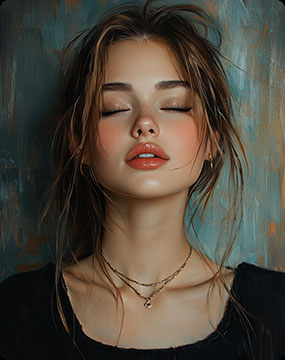 A cool girl with brown hair, indoors, busts view, studio light, expressive painting style --ar 3:4 --seed 1632872213 --style raw --stylize 750 --v 6.1
A cool girl with brown hair, indoors, busts view, studio light, expressive painting style --ar 3:4 --seed 1632872213 --style raw --stylize 750 --v 6.1 -
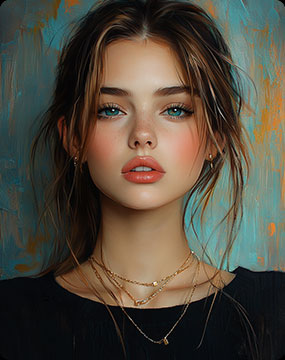 A cool girl with brown hair, indoors, busts view, studio light, expressive painting style vivid color palette
A cool girl with brown hair, indoors, busts view, studio light, expressive painting style vivid color palette
--ar 3:4 --seed 1632872213 --style raw --stylize 750 --v 6.1 -
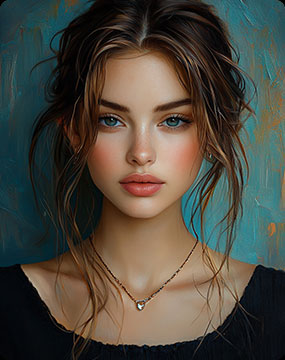 A cool girl with brown hair, indoors, busts view, studio light, expressive painting style, vivid color palette, thick texture like Van Gogh --ar 3:4 --seed 1632872213 --style raw --stylize 750 --v 6.1
A cool girl with brown hair, indoors, busts view, studio light, expressive painting style, vivid color palette, thick texture like Van Gogh --ar 3:4 --seed 1632872213 --style raw --stylize 750 --v 6.1 -
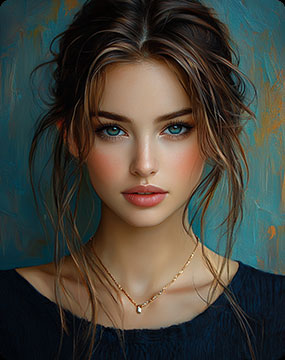 A cool girl with brown hair, indoors, busts view, studio light, expressive painting style, vivid color palette, thick texture like Van Gogh golden ratio
A cool girl with brown hair, indoors, busts view, studio light, expressive painting style, vivid color palette, thick texture like Van Gogh golden ratio
--ar 3:4 --seed 1632872213 --style raw --stylize 750 --v 6.1
Refine Details: A Single Word Can Make A Big Difference in Midjourney
When crafting prompts, prioritize the core elements of subject, background, and artistic style. These form the foundation for your desired image. To further refine your image, consider elements like lighting conditions, camera perspective, desired mood, compositional style, and artistic medium. These additional details will significantly enhance Midjouney's ability to generate an image that aligns precisely with your vision.
We've broken down Midjourney prompts into 8 elements. Each element is accompanied by a sample prompt to illustrate its function. By modifying the bracketed terms, you can produce a diverse range of images.
• Subject
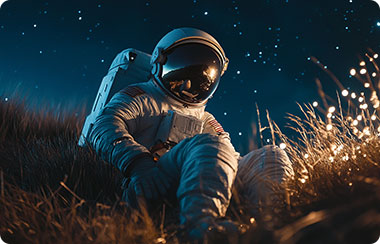 an astronaut
an astronaut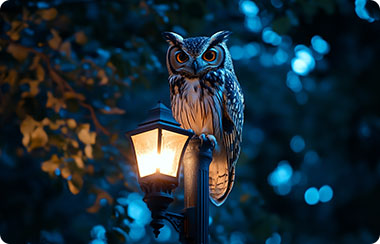 an owl perched on a lamp post
an owl perched on a lamp post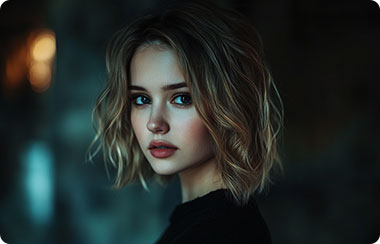 a woman with shoulder-length hair
a woman with shoulder-length hair 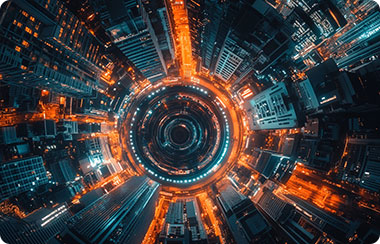 a futuristic cityscape at night
a futuristic cityscape at night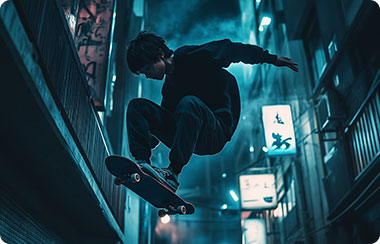 a skateboarding boy
a skateboarding boy 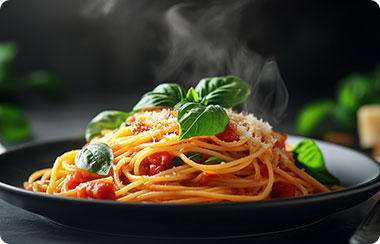 a plate of steaming pasta
a plate of steaming pasta
Prompt: A highly detailed, cinematic photograph of {an astronaut}, captured with a Sony a7R IV, using long exposure and a wide-angle lens --ar 3:2 --v 6.1
The subject is the most crucial part of a Midjourney prompt, determining the core content of your image. It can be a person, animal, object, landscape, architecture, abstract concept, or anything else. When describing the subject, go beyond simply stating what it is. You can also include its basic characteristics such as age, gender, race, occupation, skin tone, hairstyle, eye color, clothing, and actions. Feel free to combine these features to describe the subject you want to appear on your Midjourney canvas.
In addition to the common subjects mentioned above, we've compiled a more extensive list of subjects to inspire your imagination.
More Descriptive Words to Define Your Midjourney Subjects
| Category | Sub Category | Keywords |
| People | Occupations | painter, chef, astronaut, scientist, model, farmer, artisan |
| Characteristics | tall, short, fat, thin, young, old, beautiful, ugly, happy, sad | |
| Actions | running, jumping, dancing, playing, thinking, reading, painting, fighting | |
| Relationships | friends, lovers, family, strangers, competitors | |
| Identity | superhero, villain, elf, robot, alien | |
| Animals | Mammals | cat, dog, lion, tiger, panda, whale, elephant, horse, rabbit |
| Birds | eagle, pigeon, parrot, penguin, phoenix | |
| Reptiles | snake, lizard, crocodile, turtle | |
| Insects | butterfly, bee, ant, ladybug | |
| Others | fish, whale, shark | |
| Objects | Everyday items | phone, computer, book, cup, chair, table, car, bicycle |
| Food | apple, banana, strawberry, cake, pizza, hamburger | |
| Tools | hammer, saw, screwdriver, wrench, paintbrush | |
| Weapons | sword, gun, bow and arrow, magic wand | |
| Jewelry | diamond, necklace, ring, earrings | |
| Landscapes | Natural Landscapes | mountain, sea, forest, desert, grassland, waterfall, lake, starry sky |
| Urban landscapes | street, building, bridge, park, square, subway | |
| Fantasy landscapes | magic forest, fairyland, underwater world, space | |
| Future landscapes | city, spaceship, robot | |
| Architecture | Residential | house, villa, castle, hut |
| Public buildings | school, hospital, museum, library, train station, airport | |
| Religious buildings | temple, church, mosque | |
| Commercial buildings | shopping mall, office building, hotel | |
| Historical buildings | ancient ruins | |
| Others | Abstract concepts | happiness, sadness, time, space, freedom, destiny |
| Art styles | oil painting, watercolor, sketch, cartoon, anime | |
| Medium | paper, canvas, digital, sculpture | |
| Light | sunlight, moonlight, neon light, candlelight | |
| Weather | sunny, rainy, snowy, foggy |
• Background
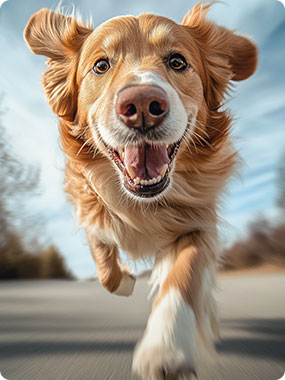 No background specified
No background specified Golden Gate Bridge
Golden Gate Bridge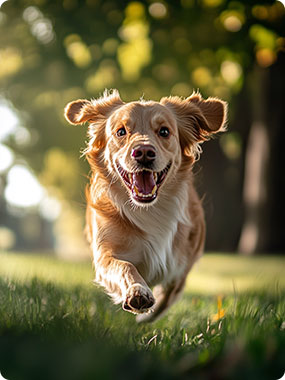 Lush green park
Lush green park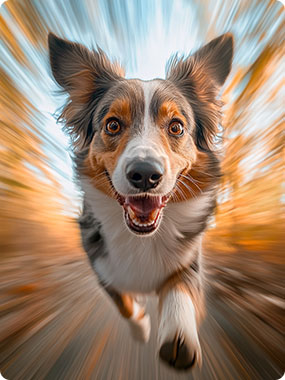 Wonderland
Wonderland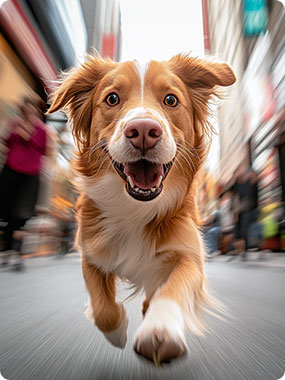 Bustling street
Bustling street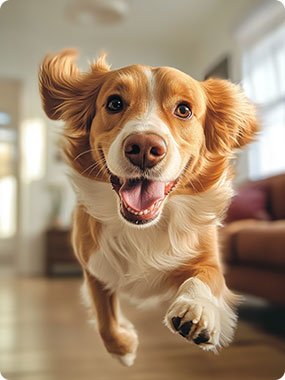 A lively living room
A lively living room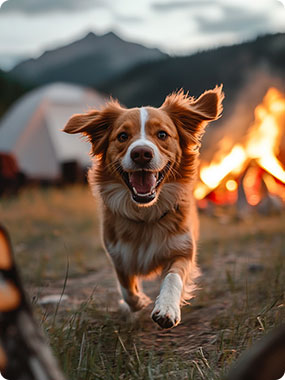 A campsite with a bonfire
A campsite with a bonfire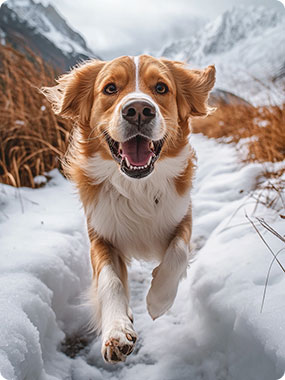 A snowy mountain path
A snowy mountain path
Prompt: https://cdn.midjourney.com/0751183c-0d64-4975-8c07-23b757f5e5c2/0_0.png A dog running towards camera, low angle high speed shot, with {the iconic Golden Gate Bridge} as a backdrop --ar 2:3 --iw 0.5 --v 6.1
In Midjourney, the background not only provides a setting and atmosphere for your image but also significantly impacts its visual impact, thematic expression, and artistic style. Imagine a lone boat adrift in a boundless cosmos; the atmosphere is vastly different from one docked in a bustling harbor. Backgrounds can be dreamy realms or post-apocalyptic wastelands, grand cosmic vistas or microscopic cells. By skillfully utilizing backgrounds, we can transport viewers to diverse scenarios, spark their imagination, and convey the emotions we intend.
Explore a Myriad of Extraordinary Scenes Through More Background Descriptions
| Environment Types | Sub-background | Scene Examples |
| Outdoors | Common outdoor scenes | • A park, green grass, trees, lake, people walking, children playing • City street, buildings, cars • Beach, sand, ocean waves, sunlight, palm trees, seagulls, swimmers • Mountains, peaks, hiking trail, forest, sky, clouds • Countryside, fields, farm, windmill, rural road • Square, fountain, statue, campus • Stadium, parking lot, amusement park, campsite, tent, campfire, forest, starry sky • Deep in the forest, Mountain peak, Desert oasis, Polar ice cap, Tropical rainforest, Volcanic lava, Vast grassland, Seaside cliffs |
| Natural wonders | Northern Lights, Rainbow waterfall, Meteor shower, Total solar eclipse, Tornado, Mirage | |
| Indoors | Common indoor scenes | Library, Museum, Art gallery, Laboratory, Kitchen, Bathroom, Bedroom, Castle hall, Space capsule |
| Specific interior | Victorian-style living room, Modern minimalist office, Gothic cathedral, Japanese tea room, Moroccan-style courtyard | |
| Fancy World | Fantastic World | Elf kingdom, Wizard's tower, Dragon's lair, Enchanted forest, Wonderland, Underground city |
| Sci-fi World | Alien planet, Space station, Future city, Inside a time machine, Virtual reality world | |
| Specific Location | Literature | Hogwarts School of Witchcraft and Wizardry, The Pequod (Moby Dick), Utopia, Pandora (Avatar), Wonderland (Alice in Wonderland) |
| Historical Events | Roman Colosseum, Medieval castle, Renaissance square, Industrial Revolution factory | |
| Abstract Concept | Time and Space | Time tunnel, Infinite loop, Distorted spacetime, Parallel universe |
| Emotion and consciousness | Dreams, Nightmares, Memories, Subconscious |
• Style
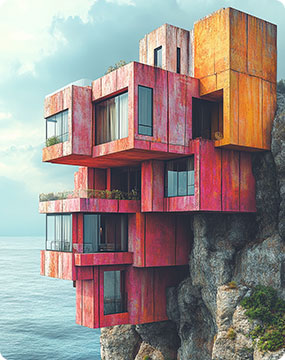 No style specified
No style specified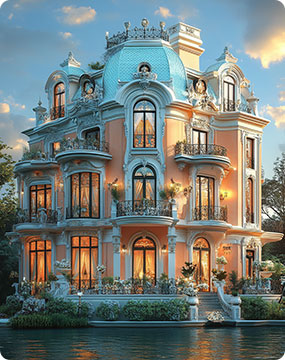 Rococo style
Rococo style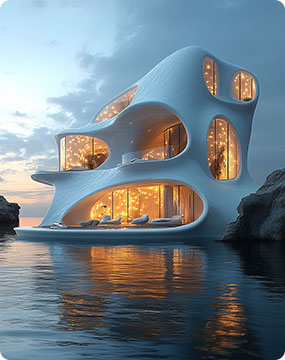 Futuristic architecture
Futuristic architecture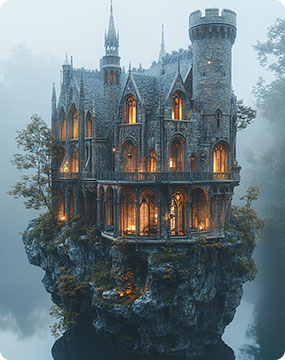 Gothic style, Notre Dame Cathedral inspired
Gothic style, Notre Dame Cathedral inspired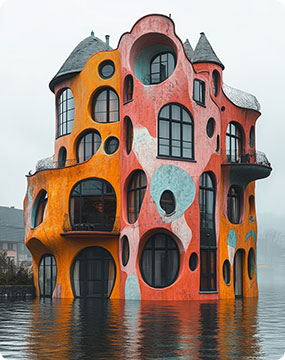 Impressionist style, Monet
Impressionist style, Monet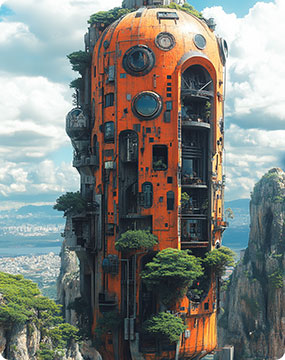 Cyberpunk
Cyberpunk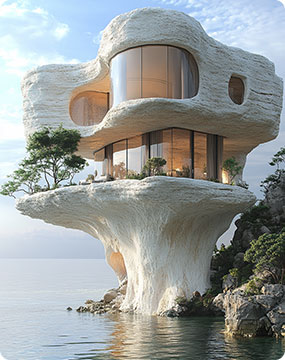 Modern minimalist style
Modern minimalist style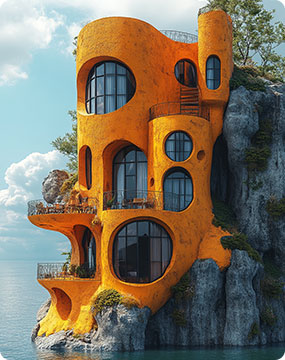 Surrealist
Surrealist
Prompt: A {Gothic style, Notre Dame Cathedral inspired} hotel building with unexpected materials and bold, contrasting colors and dreamlike, distorted shapes interior, incredible optical illusion, located on a floating island --ar 3:4 --stylize 750 --v 6.1
Style is like a magical wand that transforms your text descriptions into diverse artistic creations. Different styles evoke vastly different visual experiences, from realistic oil paintings to abstract modern art, from dreamy fairy tales to dark gothic themes. Style dictates the overall tone and aesthetic of your image. Imagine the phrase "a lonely boy standing under the night sky" rendered in cyberpunk, as a neon-lit futuristic cityscape, or in Impressionist style, as a blurry, colorful oil painting, or in the style of Miyazaki, as a tranquil, serene forest scene. In the following sections, we'll delve into various style keywords, including art schools, artist styles, and cultural styles, to help you master Midjourney and create truly unique artwork.
Explore Endless Style Possibilities Using These Words
| Style | Feature | Realated Words |
| Renaissance | realistic portrayal of anatomy, perspective, light and shadow, focus on mythology and history | humanism, rationalism, realism, idealism, classical art |
| Baroque | dramatic lighting, use of diagonals, emotional intensity, religious themes | drama, movement, emotion, rich color, contrast |
| Rococo | light and playful colors, intricate details, asymmetry, focus on leisure and pleasure | delicate, ornate, graceful, soft colors, love, joy, aristocracy |
| Neoclassicism | inspiration from Greek and Roman art, emphasis on symmetry and proportion, idealized figures | reason, order, classical beauty, history, mythology |
| Romanticism | dramatic landscapes, emotional expression, focus on individual experience, use of color to evoke emotion | emotion, imagination, heroism, nature, history |
| Realism | depiction of everyday life, focus on social issues, use of detail to create a sense of realism | objective, reality, ordinary people, social life |
| Impressionism | loose brushstrokes, focus on capturing the fleeting effects of light, use of broken color | light, color, visual sensation, outdoor painting |
| Post-Impressionism | emphasis on form and color, use of symbolism, diverse styles | subjective emotion, personal interpretation |
| Modernism | rejection of traditional forms, emphasis on individuality and expression, use of abstraction | innovation, experimentation, challenge tradition |
| Contemporary art | wide variety of styles and media, often addresses social and political issues, use of new technologies | diverse forms, social, critical, contemporary issues |
| Japanese Ukiyo-e | flat planes of color, strong outlines, dynamic composition | woodblock print, social customs, natural landscape |
| Dutch Golden Age | detailed realism, use of light and shadow, focus on everyday life | realism, daily life, landscape, portrait |
| Futurism | dynamic composition, use of lines and shapes to suggest movement, celebration of modernity | technology, machine, speed, dynamism |
| Cyberpunk | dark, futuristic settings, neon lights, digital elements | high-tech, network, artificial intelligence, inequality, conspiracy |
| Pablo Picasso | Versatile style, from Cubism to Surrealism | Cubism, Surrealism, abstract art, modern art, Spanish art |
| Vincent van Gogh | Thick brushstrokes, bright colors | Post-Impressionism, Expressionism, Dutch art, color theory, sunflowers |
| Edvard Munch | Expressionist style, emphasizing emotion | Expressionism, Norwegian art, anxiety, psychology, The Scream |
| Salvador Dalí | Surrealist style, dreamlike scenes | Surrealism, Spanish art, dream, subconscious, melting clocks |
| Claude Monet | Impressionist, known for depicting light and shadow | mpressionism, French art, landscape painting, water lilies |
| Paul Cézanne | Post-Impressionist painter, known for geometric forms and color division | Post-Impressionism, French art, cubism precursor, still life, landscape |
| Studio Ghibli | Unique, dreamlike, fairy tale style with natural elements | Japanese animation, environmentalism, fantasy, coming-of-age |
• Lighting
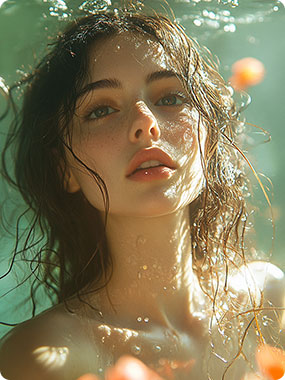 No lighting specified
No lighting specified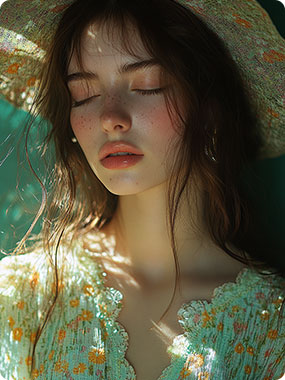 Soft, diffused lighting
Soft, diffused lighting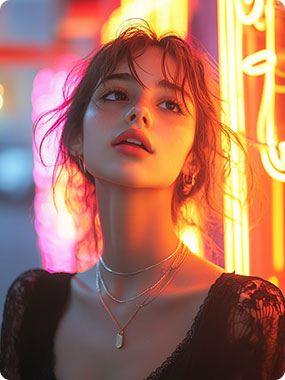 Neon lighting
Neon lighting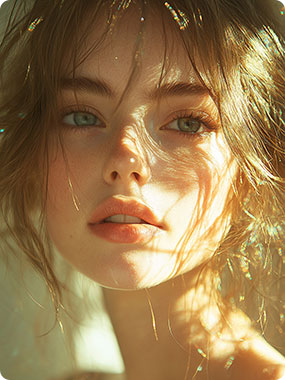 Golden hour lighting
Golden hour lighting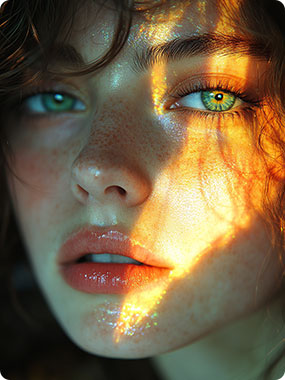 Rembrandt lighting
Rembrandt lighting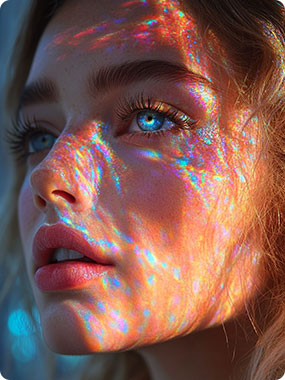 Studio lighting
Studio lighting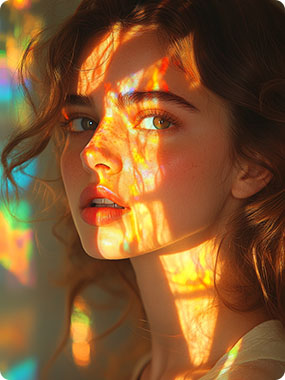 Reflected lighting from stained glass windows
Reflected lighting from stained glass windows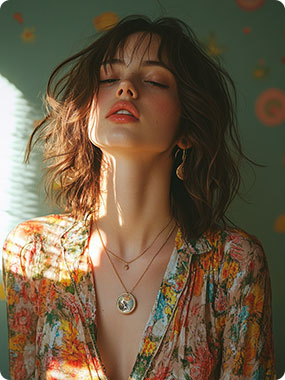 Side lighting
Side lighting
Prompt: half body shot, Female figure {illuminated by neon lighting}, capturing a whimsical and gentle atmosphere, blending documentary and magazine aesthetics, in the style of psychedelic portraiture --ar 2:3 --stylize 750 --v 6.1
Lighting plays a pivotal role in Midjourney, directly influencing the visual appeal and overall atmosphere of generated images. By fine-tuning parameters such as light source type, direction, intensity, color, and effects, a wide range of visual effects can be achieved, from warm and inviting indoor scenes to dark and mysterious horror atmospheres, and from bright and cheerful daytime settings to deep and serene nighttime scenarios. The precise control over lighting allows for countless visual possibilities, making your Midjourney creations more vivid and expressive.
More Tokens to Trigger Midjourney Lighting Effects
| Category | Light | Characteristics | Related Lighting Words |
| Light Position (Direct Light) | Front light | Object details are clear but lack a three-dimensional effect. | frontal lighting, flat lighting |
| Side light | Emphasizes the three-dimensional effect and texture of the object, creating obvious shadows. | side lighting, dramatic lighting | |
| Top light | Emphasizes the outline of the object, creating strong shadows. | top lighting, overhead lighting | |
| Bottom light | Creates a mysterious, terrifying atmosphere, often used in horror or suspense films. | bottom lighting, underlighting | |
| Backlight | Creates rim light, creating a dreamy, mysterious atmosphere. | backlight, rim lighting, silhouette | |
| Indirect Light | Ambient light | Diffused light from the surrounding environment, such as light reflected from the sky or walls. | ambient light, diffused light |
| Reflected light | Light that is reflected off the surface of an object onto other objects. | reflected light, bounced light, mirror reflection | |
| Light Intensity | Hard light | Small and concentrated light source, producing sharp, defined shadows. | hard light, direct light |
| Soft light | Large and diffused light source, producing soft, blurred shadows. | soft light, diffused light | |
| Light Color Temperature | Warm light | Lower color temperature, giving a warm, soft feeling. | warm light, tungsten light, candlelight |
| Cool light | Higher color temperature, giving a cool, calm feeling. | cool light, daylight, blue light | |
| Shadows | High-contrast shadows | Deep shadows, creating a strong contrast with the bright areas. | high contrast, dramatic shadows |
| Low-contrast shadows | Soft shadows, with a natural transition to the bright areas. | low contrast, soft shadows | |
| Special Lighting Effects | Spotlight | Intense and focused beam of light. | spotlight, focused light |
| Rainbow halo | Refraction of light creates a rainbow effect. | rainbow halo, chromatic aberration | |
| Night glow | Objects emit their own light or glow in the dark. | night glow, phosphorescence, bioluminescence | |
| Dim light | Weak light, creating a mysterious atmosphere. | dim light, low light | |
| Starlight | Simulates the twinkling light of stars. | starlight, twinkling lights | |
| Golden hour light | Warm, soft light during sunrise or sunset. | golden hour, warm light | |
| Rim light | Light that shines from the edge of an object, highlighting the outline. | rim light, edge light | |
| Dark light | Extremely weak light, creating a dark atmosphere. | dark light, shadow | |
| Colored light | Light with a specific color. | colored light, tinted light | |
| Neon light | Intensely colored light produced by neon lights. | neon light, neon glow | |
| Rembrandt lighting | A type of side lighting that creates a triangular highlight on the cheek. | Rembrandt lighting, chiaroscuro | |
| Butterfly lighting | Light source is above the nose, creating a butterfly-shaped shadow under the nose. | butterfly lighting, Paramount lighting | |
| Ring light | Light source is in a ring shape, evenly illuminating the subject. | ring light, beauty light |
• Art Medium
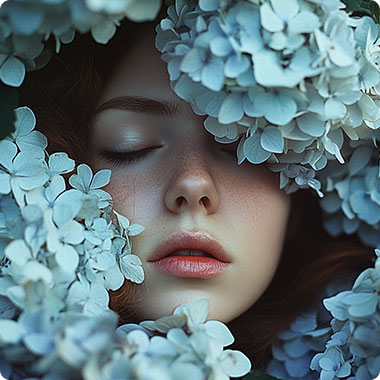 Realistic photo
Realistic photo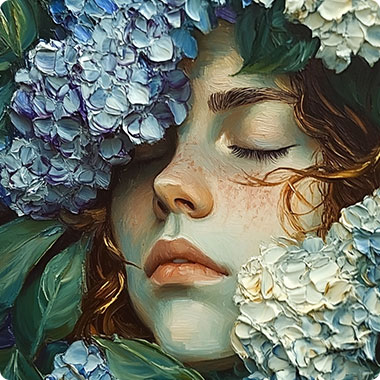 Thick texture oil painting like Van Gogh
Thick texture oil painting like Van Gogh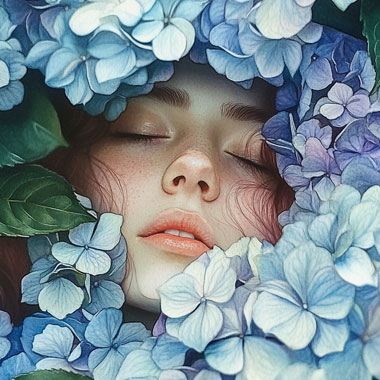 Watercolor painting
Watercolor painting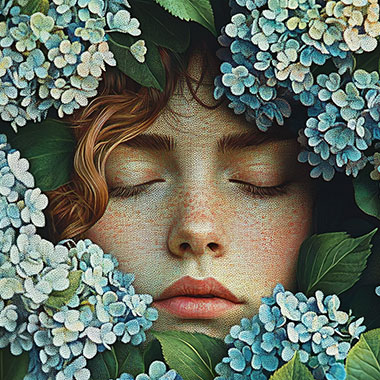 Pointillism art
Pointillism art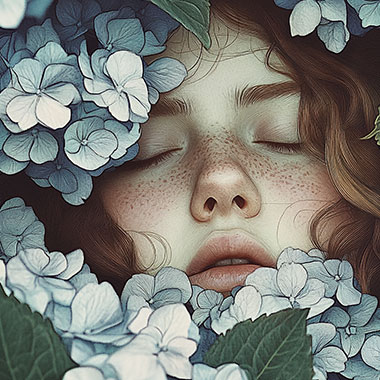 Sketch illustration
Sketch illustration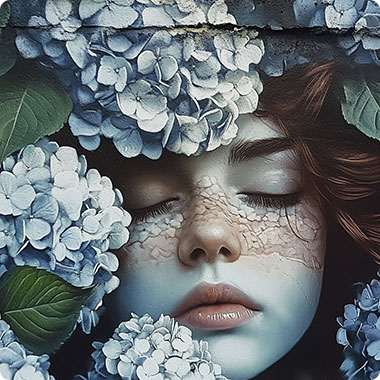 Street art spray paint graffiti
Street art spray paint graffiti
Prompt: https://cdn.midjourney.com/531d74f3-e51b-40e5-b5ba-befec07da07e/0_2.png a {realistic photo} of a woman surrounded by hydrangeas, only can see her face --v 6.1
The choice of art medium is a crucial step in creating Midjourney images. Different media have unique characteristics that significantly influence the visual effects, creative process, and expressive possibilities of a piece. For instance, oil painting offers rich, saturated colors and a heavy texture, making it ideal for capturing light and depth. Watercolors, with their transparent colors and delicate texture, are well-suited for conveying ethereal and dreamlike atmospheres. Digital photography provides exceptional detail and versatility, making it suitable for a wide range of subjects and offering limitless possibilities. Users should select the medium that best aligns with their creative intent and style to effectively express their thoughts and emotions.
To broaden your understanding of art media and empower you to make informed choices in your Midjourney creations, we've expanded on the common media mentioned above.
Explore More Specific Art Medium from Traditional to Digital
| Art Medium | Technique | Description | Keywords |
| Traditional Painting | Oil Painting | High color saturation, rich layers, thick brushstrokes | oil painting, impasto, realism, impressionism, portrait, landscape |
| Watercolor | Transparent colors, strong layering, light brushstrokes | watercolor, wash, transparent, landscape, botanical, portrait | |
| Acrylic | Quick-drying, good coverage, vibrant colors | acrylic, opaque, versatile, abstract, pop art, street art | |
| Ink Painting | Painting with ink on Xuan paper, unique style | ink painting, sumi-e, calligraphy, landscape, figure painting | |
| Photography | Photography | Recording images using optical principles | photography, digital photography, film photography, portrait, landscape, street photography |
| Film Photography | Recording images on film, unique texture | film photography, analog, vintage, grain, color negative, slide film | |
| Digital Photography | Recording images using electronic sensors | digital photography, DSLR, mirrorless, RAW, JPEG | |
| Digital Photography | Recording images using electronic sensors | digital photography, DSLR, mirrorless, RAW, JPEG | |
| Digital Art | 3D Modeling | Creating models in three-dimensional space | 3D modeling, 3D rendering, polygon, texture, animation, game art |
| Vector Graphics | Images defined by mathematical equations | vector graphics, scalable, logo design, illustration, icon | |
| Pixel Art | Images composed of individual pixels | pixel art, 8-bit, retro, game, sprite | |
| Digital Painting | Creating art using digital painting software | digital painting, Photoshop, Procreate, concept art, illustration | |
| Mural | Mural | Painting directly on a wall or other surface | mural, fresco, graffiti, public art, large scale |
| Relief Sculpture | Carving raised images on a flat surface | relief sculpture, bas-relief, high relief, decorative art | |
| Mosaic | Creating images with small colored pieces | mosaic, tile, Byzantine art, Islamic art | |
| Sculpture | Stone Sculpture | Carving with stone | stone sculpture, marble, granite, realism, abstract |
| Wood Sculpture | Carving with wood | wood carving, figure carving, decorative carving | |
| Metal Sculpture | Carving with metal | metal sculpture, bronze, steel, abstract, kinetic art | |
| Illustration | Line Drawing | Creating images with lines | line art, contour drawing, illustration, cartoon |
| Comics | Storytelling through a sequence of images | comics, manga, graphic novel, illustration | |
| Concept Art | Creating visual concepts for film, games, etc. | concept art, character design, environment design | |
| Graffiti | Spray Painting | Painting with spray cans | graffiti, spray paint, street art, urban art |
| Marker Art | Painting with markers | marker art, sketch, illustration | |
| Brush Painting | Painting with brushes | brush painting, graffiti, street art |
• Composition
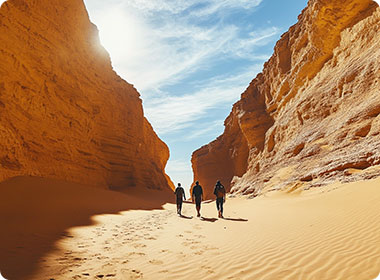 No composition specified
No composition specified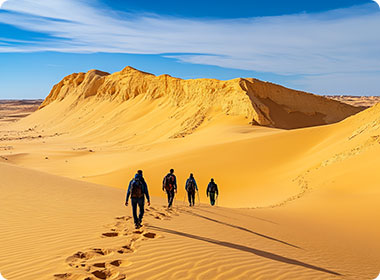 Rule of thirds
Rule of thirds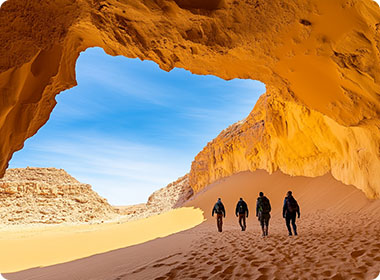 Golden ratio
Golden ratio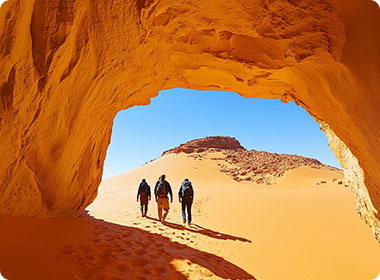 Frame composition
Frame composition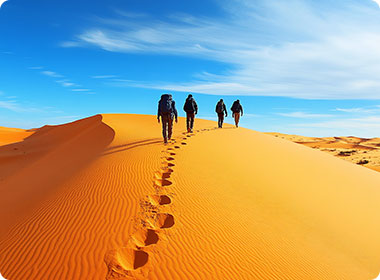 Leading lines
Leading lines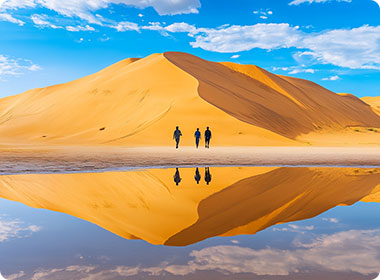 Symmetrical composition
Symmetrical composition
Prompt: Travelers walking through the Algerian desert to discover caves, golden sand, rich golden tones contrasted with cool blue sky, {leading lines composition along a ridge in the desert}, documentary style, cultural authenticity --ar 4:3 --style raw --v 6.1
Composition in Midjourney is akin to a painter's canvas arrangement. It determines how elements are positioned within the frame, directly influencing the viewer's focus and overall impression. A well-composed image achieves balance, harmony, and emphasizes the subject, guiding the viewer's eye. By skillfully applying composition principles, you can create visually striking and artistically compelling works.
More Composition Terms to Create Visual Balance and Focus
| Composition | Description | Best for | Keywords |
| Rule of Thirds | Dividing the frame into a 3x3 grid and placing the subject on the intersections or lines for a balanced composition. | Landscape, portrait, product photography | balance, proportion, grid, harmony |
| Golden Ratio | Dividing the frame according to the golden ratio. | Portrait photography, still life photography | golden ratio, harmony, proportion, balance |
| Symmetry | Dividing the frame into equal halves, creating a sense of formality and equilibrium. | Architecture, product photography | symmetrical, formal, equilibrium, reflection |
| Leading Lines | Using lines within the image (roads, rivers, buildings) to guide the viewer's eye. | Landscape, architecture photography | perspective, depth, focus, direction |
| Framing | Using elements within the image (doors, windows, trees) to frame the subject. | Portrait, product photography | enclosure, focus, isolation, context |
| Negative Space | Leaving a significant portion of the frame empty to emphasize the subject. | Minimalism, product photography | minimalism, simplicity, focus, white space |
| Diagonal Composition | Using diagonal lines to create a sense of movement and energy. | Action photography, sports photography | movement, action, energy, dynamism |
| S-curve | Using an S-shaped curve to guide the viewer's eye and add softness to the image. | Portrait, product photography | curve, flow, rhythm, elegance |
| Triangle Composition | Arranging elements in a triangular shape to create a sense of stability. | Portrait photography, still life | stability, balance, geometry, pyramid |
| Horizontal Composition | A wide, horizontal format, often used for landscapes. | Landscape photography, still life photography | wide, expansive, calm, serene |
| Radial Composition | Elements radiating from or converging towards a central point. | Abstract photography, sports photography | radial, movement, energy, dynamic |
| Focal Point Composition | Using elements like light, color, or blur to draw the viewer's eye to a specific point. | Product photography, portrait photography | focus, emphasis, contrast, bokeh |
| Isolated Composition | Separating the subject from the background to create a strong contrast. | Product photography, portrait photography | isolation, contrast, focus, simplicity |
| Tunnel Composition | Using narrow spaces or lines to guide the viewer's eye into the image. | Architecture photography, landscape photography | depth, perspective, leading lines, mystery |
| Mandala | Creating a circular pattern with repeated elements. | Abstract art, meditation, religious art | mandala, symmetry, circular, pattern |
| Vanishing Point | Using vanishing points to create a sense of depth and space. | Landscape photography, architecture design | vanishing point, perspective, depth, convergence |
| Repetition Composition | Using multiple similar elements to create a sense of rhythm and order. | Product photography, abstract photography | rhythm, pattern, repetition, texture |
| Overlapping Composition | Overlapping elements to create a sense of depth and complexity. | Product photography, still life photography | overlap, layers, depth, complexity |
| Parallel Composition | Arranging elements side-by-side to create a sense of balance. | Product photography, still life photography | parallel, balance, comparison, contrast |
| Contrast Composition | Using opposing elements to create a strong visual impact. | Advertisement design, poster design | contrast, difference, emphasis, impact |
• Camera Lens
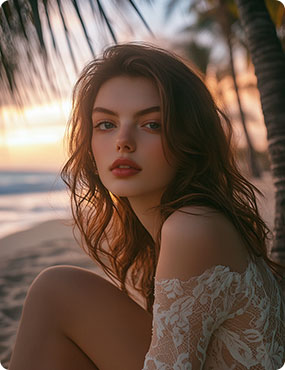 Headshot close up
Headshot close up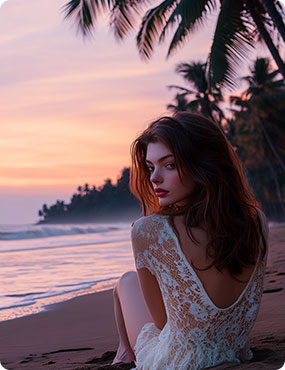 Fullbody view
Fullbody view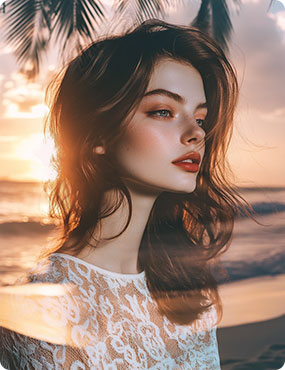 Double exposure
Double exposure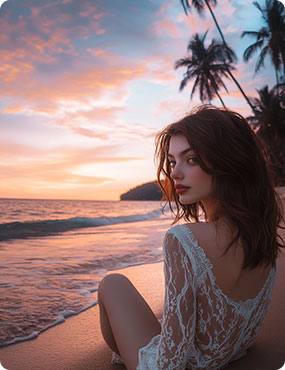 Wide angle shot
Wide angle shot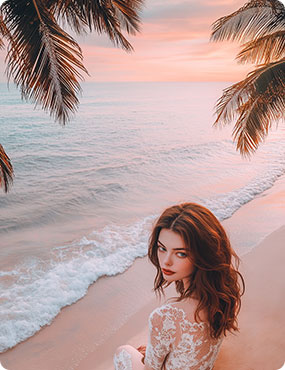 Bird's eye view
Bird's eye view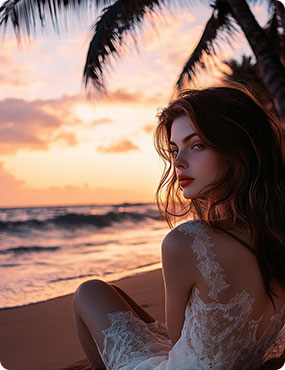 Worm's eye view
Worm's eye view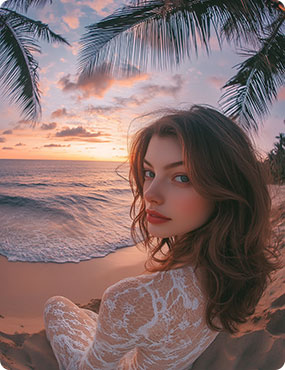 Fisheye view
Fisheye view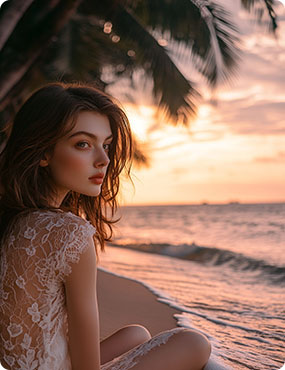 Oblique angle side view
Oblique angle side view
Prompt: {headshot close up} of a women sitting on the tropical beach at sunset, the sky painted in hues of pink and orange, palm trees swaying, waves gently lapping at the sandy shore, Fujifilm GFX 100s, Serene and Tranquil atmosphere --ar 3:4 --style raw --v 6.1 --cref https://cdn.midjourney.com/751fc300-e9cd-4d13-879c-95734e29c561/0_0.png
Camera lens acts like our eyes, determining the field of view and level of detail we see. Different camera angles and lenses produce varying perspectives and depths of field, influencing the overall atmosphere and visual impact of the image. For example, a wide-angle lens captures a broader scene and creates exaggerated perspective, while a telephoto lens brings distant subjects closer and compresses perspective. A large aperture or telephoto lens produces a shallow depth of field, blurring the background and emphasizing the subject, whereas a small aperture or wide-angle lens results in a deep depth of field, with everything in sharp focus. By carefully selecting the right lens, you can highlight the subject and create a desired visual style.
Additionally, the lens and composition are closely intertwined. By flexibly using various lenses and composition techniques, you can achieve optimal visual results.
More Camera Lens Related Words to Frame Your World
| Category | Term | Description | Keywords |
| Lens | Wide-angle lens | Wide angle, wide lens, perspective distortion | wide angle, distortion, perspective, landscape, architecture |
| Standard lens | Standard lens, normal lens, natural perspective | normal lens, general purpose, versatile, portrait, street photography | |
| Telephoto lens | Telephoto lens, long lens, compression | telephoto, compression, reach, sports, wildlife | |
| Angle of View | Bird's eye view | Bird's eye view, aerial view, top-down view | aerial, overhead, perspective, cityscape |
| Worm's eye view | Worm's eye view, low angle shot | low angle, perspective, dramatic, imposing | |
| Eye-level view | Eye-level view, horizontal view | natural, everyday, relatable, human perspective | |
| Dutch angle | Dutch angle, canted angle | dynamic, disorienting, dramatic, perspective distortion | |
| Perspective | First-person perspective | First person perspective, Subjective, Immersive | POV, subjective, immersive, personal |
| Third-person perspective | Third person perspective, Objective, Flexible, Narrative, Epic, Omniscient, Over-the-shoulder shot | objective, narrative, storytelling, distance, overview | |
| Special Lenses | Fisheye lens | Fisheye lens, barrel distortion | fisheye, distortion, panoramic, extreme wide angle |
| Macro lens | Macro lens, close-up | macro, close-up, detail, texture | |
| Framing | Headshot | Headshot, close-up portrait | portrait, face, close-up, headshot |
| Knee-length portrait | Knee-length portrait | portrait, body language, pose, fashion | |
| Bust-up portrait | Bust-up portrait | portrait, upper body, emotion, expression | |
| Detail shot | Detail shot, macro photography | detail, texture, close-up, focus | |
| Over-the-shoulder shot | Over-the-shoulder shot, OTS, POV shot, third-person subjective camera | over-the-shoulder, perspective, interaction, dialogue | |
| Loose composition | Loose composition, negative space, wide shot, establishing shot | loose, open, spacious, minimalist | |
| Environmental portrait | Environmental portrait, situational portrait | context, environment, story, narrative | |
| Shot Size | Long shot, wide shot, establishing shot | Long shot, wide shot, establishing shot | wide, establishing, overview, context |
| Close-up, tight shot | Close-up, tight shot | close-up, emotion, detail, intimacy | |
| Medium shot, mid-shot | Medium shot, mid-shot | medium shot, body language, interaction | |
| Lens Parameters | Aperture | Control the amount of light in the lens. Large aperture: more light, shallow depth, ideal for portraits and close-ups.Small aperture: less light, deep depth, best for landscapes. | Large aperture, small aperture, shallow depth of field, deep depth of field |
| Shutter speed | Fast shutter speed freezes action.Slow shutter speed captures motion. | Shutter speed, freezing moment, motion blur, drag | |
| ISO | The higher the ISO, the higher the sensitivity, but it is easy to produce noise in low light environments. | High sensitivity, low sensitivity, noise, purity, grain | |
| White balance | Adjust the color temperature of the image so that white objects appear white in the photo | Warm tone, cool tone, color temperature, white balance | |
| Exposure | The brightness of the image. Overexposed images are too bright, underexposed images are too dark. | Exposure, overexposed, underexposed, Exposure Compensation | |
| Depth of Field | Clear focus range. Affected by aperture, focal length, distance. | Depth of field, DOF, shallow depth of field, deep depth of field, bokeh | |
| Focal Length | Focal length affects view and zoom. Wide-angle lens: wide view. Telephoto lens: narrow view. | focal length, focal distance | |
| Focus | Image formation by a camera lens. | Focus, autofocus, manual focus, focus point, sharp, blurry, in focus, out of focus |
• Color
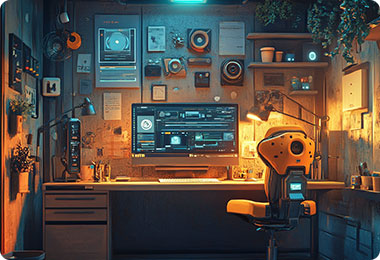 No color specified
No color specified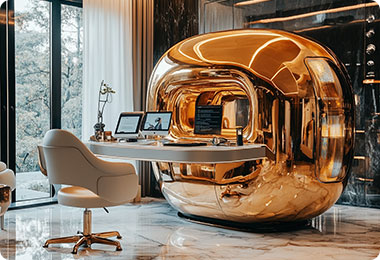 Golden, silvery and black
Golden, silvery and black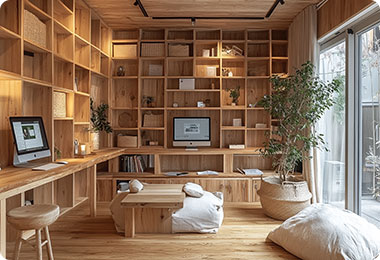 Natural and cozy, raw wood color
Natural and cozy, raw wood color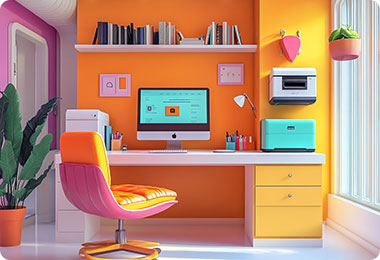 Vivid colors, orange, teal, pink
Vivid colors, orange, teal, pink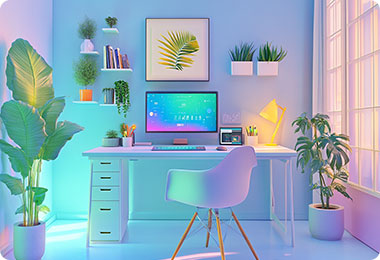 Gentle hues of blue, green, and purple
Gentle hues of blue, green, and purple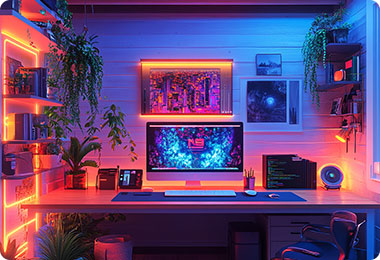 Warm neon colors, bright, electric colors
Warm neon colors, bright, electric colors
Prompt: a fun atelier where AI designs for websites are being made, {golden, silvery and black, metallic tones} --ar 4:3 --stylize 250 --v 6.1
Color in Midjourney is like a painter's palette, adding endless possibilities to your creations. It not only shapes the texture and space of objects but also conveys different emotions and atmospheres. A harmonious color palette can create a visually pleasing experience, while strong color contrasts can produce a striking impact. By skillfully using color, you can make your images more vibrant and expressive. In the following sections, we will delve into the symbolic meanings of various colors and color combination techniques, helping you better control color and create stunning visual effects.
Midjourney Color Wheel of Emotions and Associations
| Category | Color | Associated Emotions and Concepts |
| Color Scheme | Red | Passionate, energetic, dangerous, love, fire, blood, festival |
| Orange | Warm, happy, excited, energetic, autumn, sunset, food, celebration | |
| Yellow | Sunny, happy, hope, optimistic, summer, lemon, gold, warning | |
| Green | Natural, fresh, growth, harmony, grass, forest, environment, health, money | |
| Blue | Calm, peaceful, sad, trust, sky, ocean, technology, sadness | |
| Purple | Mysterious, royal, romantic, creativity, night, magic | |
| Pink | Cute, romantic, feminine, gentle, flower, girl, love, sweet | |
| Gray | Neutral, balance, mature, stable, city, industry, technology, high-end | |
| Black | Mysterious, power, death, dark, night, universe, fear, evil | |
| White | Pure, peace, beginning, light, angel, wedding, peace, purity | |
| Intensity and Saturation | Vibrant | High intensity, high saturation, gives a vibrant, intense, bright feeling, vibrant, intense, bright colors |
| Muted | Low intensity, low saturation, creates a calm, soft atmosphere, soft, desaturated colors | |
| Pastel | Low intensity, high saturation, gives a dreamy, sweet feeling, soft, light, and delicate colors | |
| Neon | High intensity, high saturation, has a strong visual impact, bright, electric colors | |
| Pastel | Low intensity, high saturation, gives a dreamy, sweet feeling | |
| Dull | Low intensity, low saturation, gives a dull, depressing feeling, lacking brightness or saturation | |
| Color Temperature | Warm | Red, orange, yellow tones, gives a warm, enthusiastic feeling |
| Cool | Blue, green, purple tones, gives a calm, rational feeling | |
| Golden | Warm, rich yellow tones, gives a luxurious, noble feeling | |
| Silvery | Cool, metallic tones, gives a modern, technological feeling | |
| Texture and Quality | Glossy | Shiny, reflective surface, gives a high-end, luxurious feeling |
| Matte | Dull, non-reflective surface, gives a low-key, reserved feeling | |
| Metallic | Shiny, reflective like metal, gives a modern, technological, sturdy feeling | |
| Oily | Smooth, glossy appearance | |
| Dusty | Dull, faded appearance | |
| Mood and Atmosphere | Ethereal | Light, dreamy atmosphere, gives a transcendent feeling, dreamy, otherworldly |
| Mysterious | Dark, blurry atmosphere, gives a curious, adventurous feeling, enigmatic, obscure | |
| Dramatic | Strong contrast, exaggerated colors, gives a shocking, exciting feeling, intense, emotional | |
| Serene | Peaceful, soft atmosphere, gives a relaxed, comfortable feeling, calm | |
| Playful | Bright, lively atmosphere, gives a happy, relaxed feeling |
Wrap up
The elements in a Midjourney prompt work together to determine the final image. The subject is the focal point, the background provides context, composition arranges the elements, style defines the overall artistic approach, lens simulates different camera angles and focal lengths, lighting shapes the light and atmosphere, color conveys emotions and visual impact, and medium mimics various painting or photography styles. By skillfully combining these elements, you can generate countless variations of images.
However, not every image needs to include all of these elements. It depends entirely on the theme and style you want to express. Sometimes, a simple image with just a subject and a simple background can have a strong visual impact. The key is to select the elements that best highlight your subject and combine them appropriately. Creating Midjourney prompts is a creative process. By flexibly using various elements, you can generate countless different images. Most importantly, keep an open mind, keep experimenting, and find your own unique style.
Midjourney Parameters Change How An Image Generates
Parameters are optional commands that change the final images. Midjourney accepts more than one parameter. To add them, type double hyphens (–) followed by the parameter name and specifics at the end of the prompt. Below are the most important Midjourney parameters:
- Aspect Ratio--ar/--aspect
- Stylize--stylize/--s
- Style--style raw
- Quality--quality/--q
- Style Reference--sref URL
- Style Weight--sw
- Character Reference--cref URL
- Character Weight--cw
- Image Weight--iw
- Chaos--chaos/--c
- Weird--weird/--w
- Version--v/--version
- Seeds--seed
- No--no
- Tile--tile
- Stop--stop
- Others
The --ar (or --aspect) parameter changes the aspect ratio of the generated image. An aspect ratio is the width-to-height ratio of an image. It is typically expressed as two numbers separated by a colon, such as 7:4 or 4:3. The default aspect ratio of Midjourney is 1:1. --ar must use whole numbers (e.g. 139:100 instead of 1.39:1).
Frequently used aspect ratios by Midjourney users include 1:1 (default), 5:4/4:5 (frame and print ratio), 3:2/2:3 (print photography), 7:4/4:7 (HDTV/smartphone ratio), 2:1/1:2 (Midjourney maximum ratio), 4:3/3:4 (landscape/portrait ratio), and 16:9 (widescreen TV ratio). Older Midjourney version models may not support all aspect ratios.
- 4:5
- 2:3
- 4:7
- 1:1
- 5:4
- 3:2
- 7:4
Prompt: Bright yellow lemon slices with viridescence leaf in sparkling water, 8k resolution --ar 4:5 --v 6.1
The --stylize or --s parameter influences how strongly the Midjourney’s default aesthetics is applied. Low stylization values produce images that closely match the prompt but are less artistic. High stylization values create images that are very artistic but less connected to the prompt.
--stylize accepts values: 0–1000. The default --stylize value is 100. When using Stylize in settings, Stylize Low = --s 50, Stylize Med = --s 100, Stylize High = --s 250, Stylize Very High = --s 750.
- 0
- 100
- 250
- 750
Prompt: Vogue editorial photoshoot of three glamorous European models, upper body, perfect skin, 8k resolution, style of modern chic fashion --v 6.1 --ar 7:4 --stylize 0 Vogue editorial photoshoot of three glamorous European models, upper body, perfect skin, 8k resolution, style of modern chic fashion --v 6.1 --ar 7:4 --stylize 100 Vogue editorial photoshoot of three glamorous European models, upper body, perfect skin, 8k resolution, style of modern chic fashion --v 6.1 --ar 7:4 --stylize 250 Vogue editorial photoshoot of three glamorous European models, upper body, perfect skin, 8k resolution, style of modern chic fashion --v 6.1 --ar 7:4 --stylize 750
The --style parameter replaces the default aesthetic of some Midjourney Model Versions, and --style raw is frequently used.
--style raw has less automatic beautification applied, which can result in a more accurate match when prompting for specific styles. Model Versions 6.1, 6, 5.2, 5.1, and Niji 6 accept --style raw.
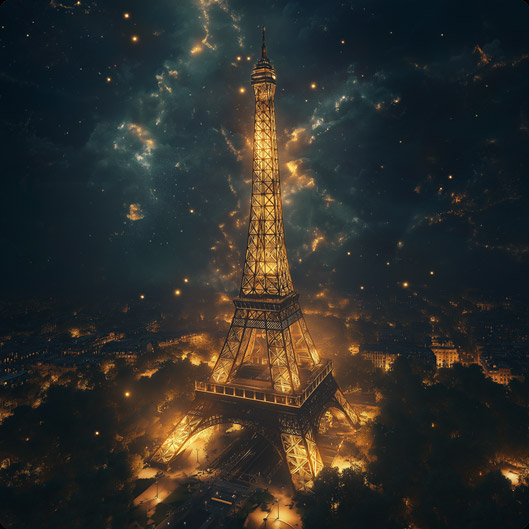 --v 6.1
--v 6.1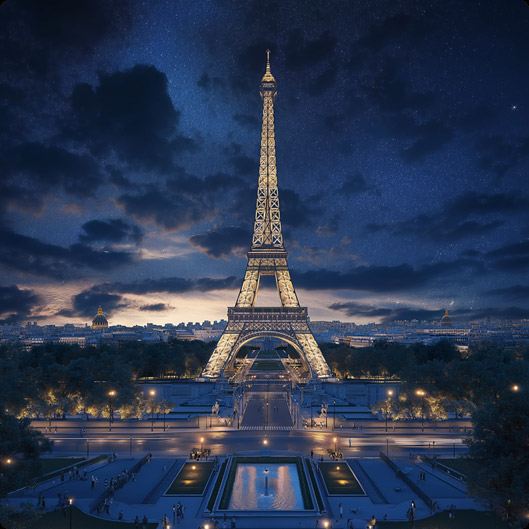 --v 6.1 --style raw
--v 6.1 --style raw
Prompt: A realistic photo of Eiffel Tower at night --v 6.1A realistic photo of Eiffel Tower at night --v 6.1 --style raw
You can control how much time your images take to generate with --quality or --q. A lower --quality value means your images generate faster but they will be less detailed. A higher --quality value costs more GPU time and can improve image textures and details, but may reduce the coherency of your images. --quality does not impact the resolution of your generated images. Also, --quality only influences the initial image generation, not variations or upscales.
The default --quality value is 1. Different Midjourney Version Models have different quality ranges: V6.1 (.5, 1, 2), V6 (.25, .5, 1), V5.2 (.25, .5, 1), niji 5 (.25, .5, 1), etc.
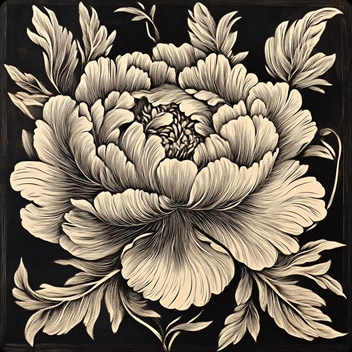 --quality .5
--quality .5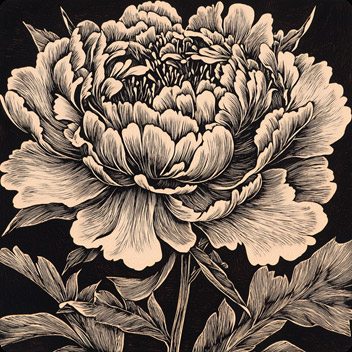 --quality 1 (default)
--quality 1 (default)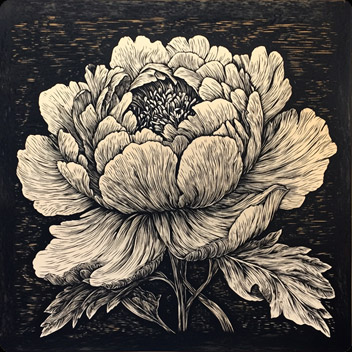 --quality 2
--quality 2
Prompt: Intricate woodcut of a peony --v 6.1 --quality .5Intricate woodcut of a peony --v 6.1 --quality 1Intricate woodcut of a peony --v 6.1 --quality 2
You can use images as style references in your prompt to influence the style or aesthetic of images you want Midjourney to make. To add style references to a prompt, use the --sref parameter with the web address (URL) where the image is stored online: --sref URL. You can use multiple style references: --sref URL1 URL2 URL3. You can use --sref random to randomly select a style from an abstract range that Midjourney knows how to generate. You can also use --sref <seed number>, e.g. --sref 762351716 to generate images in the same style.
--sref can be used with Midjourney Version 6.1/6 and Niji Version 6. Style references only apply to prompts that include text, they can’t be used with image-only prompts. To maintain a consistent character while using a style reference, you can combine the --sref and --cref parameters.
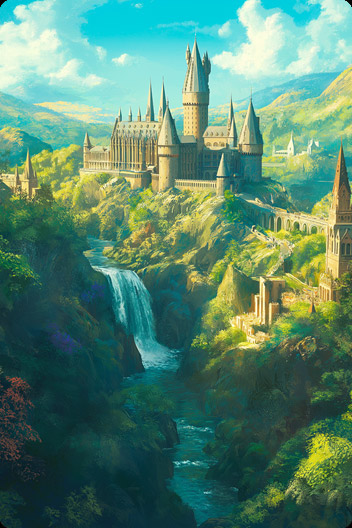 Reference Image
Reference Image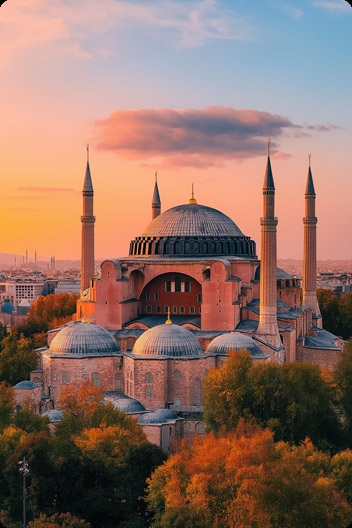 The Hagia Sophia Grand Mosque
The Hagia Sophia Grand Mosque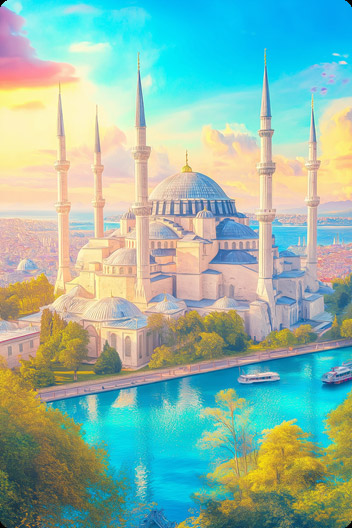 The Hagia Sophia Grand Mosque
The Hagia Sophia Grand Mosque
--sref https://s.mj.run/EmvFO8LOKqk
Prompt: Hogwarts School of Witchcraft and Wizardry, illustrated in the style of Hayao Miyazaki, with intricate details, surrounded by lush greenery, waterfalls, rivers, and many characters walking around, vibrant colors, high resolution, high contrast, and highly detailed --v 6.1 --ar 2:3The Hagia Sophia Grand Mosque --v 6.1 --ar 2:3The Hagia Sophia Grand Mosque --sref https://s.mj.run/EmvFO8LOKqk --v 6.1 --ar 2:3
You can use the style weight parameter --sw to set the strength of stylization when referring to an image style.
--sw is used following up behind –sref. --sw accepts values: 0–1000. The default --sw value is 100.
Higher values will produce images that closely match the reference image's style. If you use multiple images, individual style references can also be assigned different weights: --sref URL1::2 URL2::1 URL3::1.
- 0
- 50
- 100
- 800
Prompt: The Hagia Sophia Grand Mosque --sref https://s.mj.run/EmvFO8LOKqk --sw 0 --ar 7:4 --v 6.1 The Hagia Sophia Grand Mosque --sref https://s.mj.run/EmvFO8LOKqk --sw 50 --ar 7:4 --v 6.1 The Hagia Sophia Grand Mosque --sref https://s.mj.run/EmvFO8LOKqk --sw 100 --ar 7:4 --v 6.1 The Hagia Sophia Grand Mosque --sref https://s.mj.run/EmvFO8LOKqk --sw 800 --ar 7:4 --v 6.1
You can use images as character references in your prompt to create images of the same character in different situations. To add character references to a prompt, use the --cref parameter with the image URL: --cref URL. You can use multiple character references in a single prompt: --cref URL1 URL2 URL3.
--cref is not designed to be used with photographs of real people, and will distort them. --cref can be used with Midjourney Version 6.1/6 and Niji 6, and can be combined with --sref to keep the style consistency of the generated image.
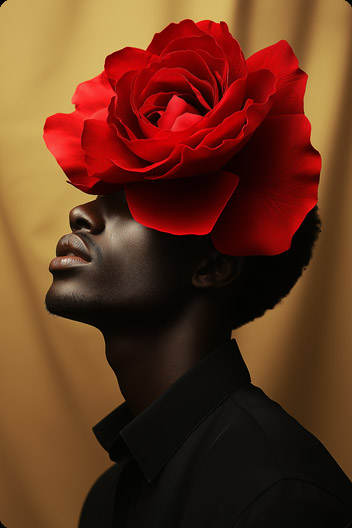 Reference Image
Reference Image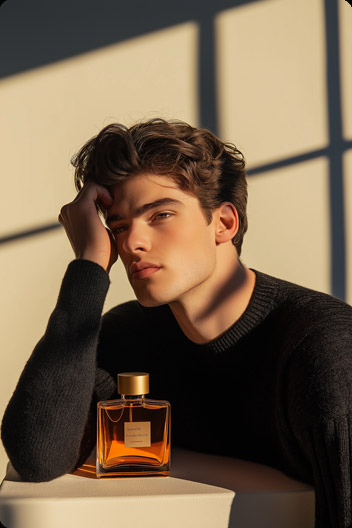 A man model, perfume product
A man model, perfume product
pedestal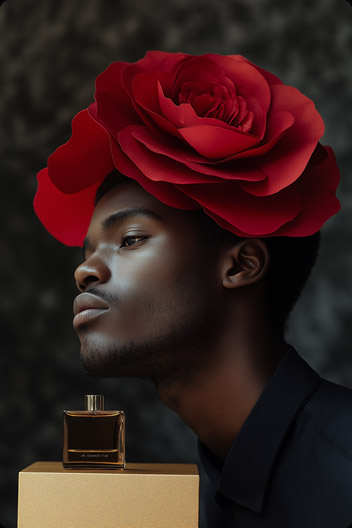 A man model, perfume product pedestal
A man model, perfume product pedestal
--cref https://s.mj.run/1-gDRXALgWI
Prompt: An african man model, an over-sized red rose on his head, smooth brown silk background --ar 2:3 --v 6.1A man model, perfume product pedestal --ar 2:3 --v 6.1A man model, perfume product pedestal --cref https://s.mj.run/1-gDRXALgWI --ar 2:3 --v 6.1
You can use the character weight parameter --cw to set the strength of characterization. --cw accepts values from 0 to 100. --cw 100 is the default value. --cw 0 focuses on the character's face only. Higher values use the character's face, hair, and clothing. --cw is used following up behind --cref URL. To maintain a consistent style while using a character reference, you can combine the --sref and --cref parameters.
- 0
- 25
- 50
- 100
Prompt: A man model, perfume product pedestal --cref https://s.mj.run/1-gDRXALgWI --cw 0 --ar 7:4 --v 6.1 A man model, perfume product pedestal --cref https://s.mj.run/1-gDRXALgWI --cw 25 --ar 7:4 --v 6.1 A man model, perfume product pedestal --cref https://s.mj.run/1-gDRXALgWI --cw 50 --ar 7:4 --v 6.1 A man model, perfume product pedestal --cref https://s.mj.run/1-gDRXALgWI --cw 100 --ar 7:4 --v 6.1
--iw is a parameter for image prompts to determine the weight given to the image prompt compared to the text prompt. A lower value indicates that Midjourney will emphasize the text prompt, while higher values indicate that the image prompt will have a greater influence on the final image.
Different Midjourney Version Models have different image weight ranges. --iw accepts values: 0–3. The default --iw value is 1. The default value is used when no --iw is specified.
Prompt: https://s.mj.run/dA3glWrQx18 a birthday cake --iw 1.5 --v 6.1
The --chaos or --c parameter influences how varied the initial image grids are. High --chaos values will produce more unusual and unexpected results and compositions. Lower --chaos values have more reliable, repeatable results.
--chaos accepts values 0–100. The default --chaos value is 0.
- 0
- 25
- 50
- 80
Prompt: A photorealistic Labrador Retriever chasing butterflies in the park with a friendly and playful expression --ar 7:4 --v 6.1 --chaos 0 A photorealistic Labrador Retriever chasing butterflies in the park with a friendly and playful expression --ar 7:4 --v 6.1 --chaos 25 A photorealistic Labrador Retriever chasing butterflies in the park with a friendly and playful expression --ar 7:4 --v 6.1 --chaos 50 A photorealistic Labrador Retriever chasing butterflies in the park with a friendly and playful expression --ar 7:4 --v 6.1 --chaos 80
This parameter introduces quirky and offbeat qualities to your generated images, resulting in unique and unexpected outcomes. If you want a generation to be conventionally attractive and weird, try mixing higher --stylize values with --weird.
--weird accepts values: 0–3000. The default --weird value is 0. --weird is compatible with Midjourney Model Versions 6.1, 6, 5, 5.1, 5.2, niji 5 and niji 6. --weird is not fully compatible with seeds.
- 0
- 250
- 500
- 1000
Prompt: A floating cloud city --v 6.1 --ar 7:4 --weird 0 A floating cloud city --v 6.1 --ar 7:4 --weird 250 A floating cloud city --v 6.1 --ar 7:4 --weird 500 A floating cloud city --v 6.1 --ar 7:4 --weird 1000
Midjourney regularly introduces new model versions to improve coherency, efficiency, quality, and style. You can switch model versions using the --version or --v parameter or using the /settings command and selecting your preferred model version. Different models excel at producing different types of images.
--version accepts the values 1, 2, 3, 4, 5, 5.0, 5.1, 5.2, 6, and 6.1. --v 6.1 is the current default model.
- v6.1
- v6
- v5.2
- niji6
Prompt: A beautifully set table, an elegant deep-fried turkey cenerted, surrounded by autumn decorations like pumpkins and gourds, candles flickering in the background --ar 7:4 --v 6.1 A beautifully set table, an elegant deep-fried turkey cenerted, surrounded by autumn decorations like pumpkins and gourds, candles flickering in the background --ar 7:4 --v 6 A beautifully set table, an elegant deep-fried turkey cenerted, surrounded by autumn decorations like pumpkins and gourds, candles flickering in the background --ar 7:4 --v 5.2 A beautifully set table, an elegant deep-fried turkey cenerted, surrounded by autumn decorations like pumpkins and gourds, candles flickering in the background --ar 7:4 --niji 6
If you use the same seed number and similar prompt, you will get similar final images. Seed numbers are generated randomly for each image but can be specified with the --seed parameter. Seed numbers are not static and should not be relied upon between sessions. --seed accepts whole numbers 0–4294967295. --seed values only influence the initial image grid.
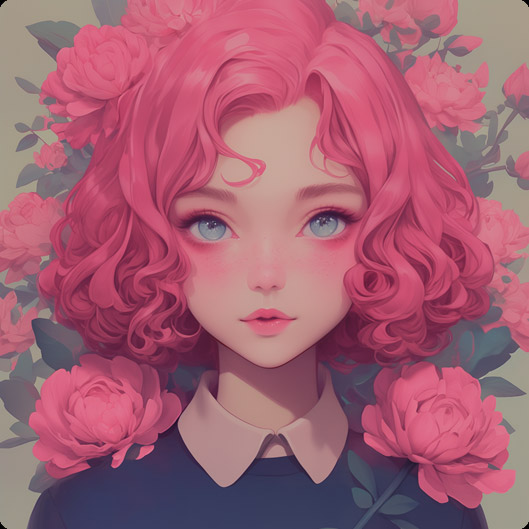 Image Prompt
Image Prompt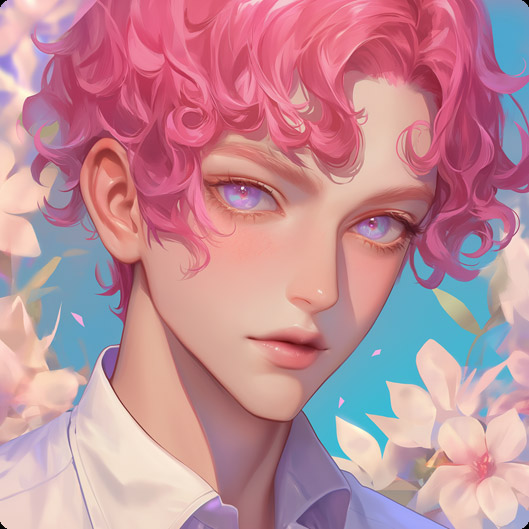 --seed 1886998622 used
--seed 1886998622 used
Prompt: 1 gorgeous girl,portrait,school uniform,short pink curly hair,big eyes,perfect skin,pink flower background --niji 61 handsome boy,portrait,school uniform,short pink curly hair,big eyes,perfect skin,pink flower background --niji 6 --seed 1886998622
The No parameter (--no) tells the Midjourney Bot what not to include in the generated image. --no accepts multiple words separated with commas: --no item1, item2, item3, item4
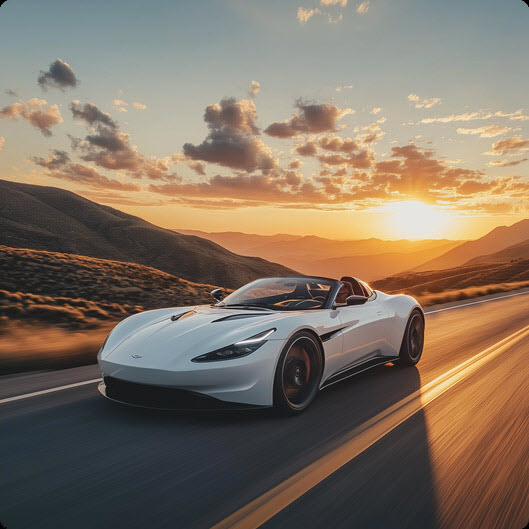 Prompt
Prompt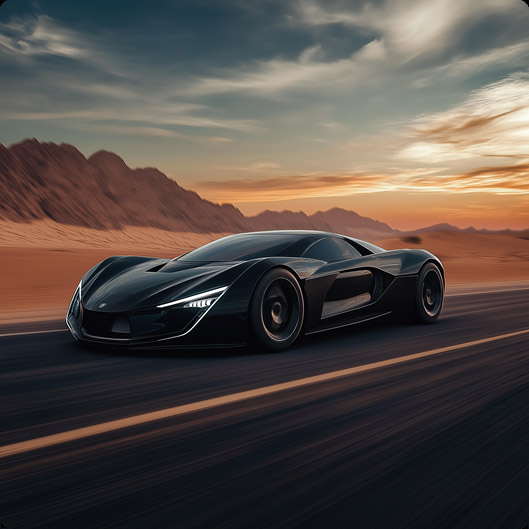 --no sun
--no sun
Prompt: A luxury roadster driving on the desert road at sunset --v 6.1A luxury roadster driving on the desert road at sunset --v 6.1 --no sun
The --tile parameter generates images that can be used as repeating tiles to create seamless patterns for fabrics, wallpapers, and textures. --tile only generates a single tile. --tile works with Model Versions 1 2 3 test testp 5 5.1 5.2 6 and 6.1.
Prompt: A pattern that blends luxurious flowers with a peacock --v 6.1 --ar 7:4 --tile
You can use the --stop parameter to finish a Job partway through the process. Stopping a Job at an earlier percentage can create blurrier, less detailed results.
--stop accepts values: 10–100. The default --stop value is 100. --stop does not work while upscaling.
Prompt: A vibrant 3D baby dragon hatching from a glowing egg, with tiny wings and a curious expression --v 6.1 --stop 90
| Multi Prompts | :: | You can blend multiple concepts using :: as a separator. It allows you to assign relative importance to the concept in the prompt, helping you control how they are blended together, e.g. space:: ship or space::2 ship. There is no space between the double colons ::. Any parameters are still added to the very end of the prompt. Learn More about Multi Prompts >> |
| Personalization | "--p" or "--personalize" | Personalization uses the data from your image rankings and likes (❤️s) on the website to create your unique style. You'll only be able to use --p once you've ranked and/or ❤️ed enough images on the website. |
| Repeat | "--repeat" or "--r" | The --repeat or --r parameter runs a Job multiple times. Combine --repeat with other parameters, like --chaos to increase the pace of your visual exploration. |
| Video | "--video" | Use the --video parameter to create a short movie of your initial image grid being generated. React to the finished job with the envelope ✉️ emoji to have the Midjourney Bot send a link to the video to your Direct Messages. |
Pro Tips for Midjourney Prompts
By focusing on the core elements of your desired image - subject, scene, and style - you increase the likelihood of achieving your desired outcome. Avoid overly complex descriptions, as they can confuse the AI and lead to unexpected results. A concise and direct prompt allows Midjourney to focus on the essential aspects of your vision.
Besides, the order of elements in your prompt significantly influences the AI's interpretation. Placing the most important elements first ensures that they receive priority during the image generation process.
Using ChatGPT or Gemini to generate Midjourney prompts can significantly enhance the quality and creativity of your generated images. Before you start, have a clear vision of what you want to create. Describe your idea in detail, considering elements such as style, mood, color, and specific features. For example:
- User: I want to create a mountain lake at dawn, shrouded in mist, with surrounding forests reflected in the water.
- ChatGPT: a misty mountain lake at dawn, its tranquil waters mirroring the surrounding trees. Describe the peacefulness of this scene and the mysteries it holds as daylight begins to break.
- Gemini: a tranquil mountain lake, fog rolling over the surface, lush green trees reflected in the calm water, sun rays piercing through the mist, 8k resolution, hyperrealistic
While ChatGPT and Gemini can be valuable tools to assist you, you may need to fine-tune the Midjourney prompts to better align with the image in your mind.
You don't always need to follow strict grammar rules in Midjourney prompts. Putting important elements first and separating them with commas can facilitate clearer communication with Midjourney. If the words you're using aren't being interpreted as you intended, consider using synonyms. This can help avoid repetition and introduce new elements into the image generation process.
Besides coming up with your own prompts, you can also draw inspiration from images created by others. This could involve uploading your local image, using someone else's Midjourney image creation as a reference, or copying prompts from Midjourney's official website or other prompt databases like PromtHero. Use these as a starting point for your own prompts, but remember to adapt them to fit your unique vision.
Midjourney offers a range of commands to enhance your image generation process. Experiment with commands like "blend," "describe," and "tune" to fine-tune your results. These tools provide additional control over the image generation process and allow you to achieve more precise outcomes.
- /blend: combine two or more images together to create a new, blended image. For example, /blend [Job ID or URL of image 1] [Job ID or URL of image 2] (You can blend up to 5 images)
- /tune: fine-tune a generated image, adjusting elements like style, color, and detail. It writes as “/tune [Job ID] [parameters]”. For example, /tune 12345 --style anime will adjust the style of image with Job ID 12345 to be anime-like.
- /describe: It prompts Midjourney to analyze an image and generate a text description of it, helping you better understand its characteristics. /describe [Job ID or URL of image]
- /settings: adjust various settings for your Midjourney experience, such as the default model version, aspect ratio, chaos level, and more.
Midjourney image generation is an iterative process. Don't be discouraged if your initial prompt doesn't yield the desired results. Analyze the generated images, identify areas for improvement, and refine your prompt accordingly. This iterative approach will help you gradually hone your skills and achieve your desired outcome.
Remember, practice makes perfect. The more you experiment with Midjourney, the better you'll become at crafting effective prompts.
Create Your Own Midjourney Arts & Upscale Them for Big Impact Now
Show off your Midjourney creations {win prizes!} and take them further with Aiarty Image Enhancer! Upscale your Midjourney masterpieces into stunning high-resolution images. Eliminate blurriness and uncover hidden details in your AI art.
Prizes you're going to win!
We will contact you via email if you reach the target and are picked as winner.
-
Prize01
 x45
Midjourney
x45
Midjourney
Standard Monthly PlanHow to win?The top 3 liked images of each category will be the winners in each round. There are three rounds in total.
-
Prize02
 Giveaway
Aiarty Image Enhancer
Giveaway
Aiarty Image Enhancer
Current VersionHow to get?Every entrant can get the license code of Aiarty Image Enhancer's current version for free.
Please read the rules for this contest carefully.
The winners will be picked fairly and transparently. Wish you good luck!
Grand Prize: Midjourney Standard Monthly Plan x45. Worth $1350 in total.
Participation award: Giveaway license of Aiarty Image Enhancer's current version. Worth $85 per copy. Users can use the giveaway version forever but without free upgrade.
There are three rounds of this campaign.
Round 1 will end on 20th Sept. 2024.
Round 2 will end on 10th Oct. 2024.
Round 3 will end on 31st Oct. 2024.
Step 1. Generate AI image of your country in any forms and style. (NO NSFW or political content allowed. We keep the rights to remove any images which violate the rules.)
Step 2. Enhance it with Aiarty. Every entrant can get Aiarty Image Enhancer's current version for free above.
Step 3. Upload the image. Make sure the image size is in .jpg, .jpeg, .png or .webp format. If image is under 2MB, it will automatically uploaded to the gallery. If image is over 2MB, please send us the link of your image, we will manually add it in 1 work day. If you have any concern, just email us: media@aiarty.com
The top 3 liked images in each category will be choosen as winners during each round.
All winners will be announced on our social platforms. And winners will be contact via email seperately to redeem the prize. If not answered in a week, we would take it as abstention.
1. The email address will be used for confirmation, winner announcement, prize notifying and other event related information of Aiarty. And according to the privacy policy, your personal information will neither be sold nor leaked. You'll be able to opt-out at any time.
2. We keep the rights to remove any improper content (ie. NSFW, political, etc.) uploaded by the entrants.
3. The use of agency or any automated system to get likes is strictly prohibited. If detected, the entry will be invalid.
4. The Administrator reserves the right to substitute prizes with equal value cash/Amazon card under exceptional circumstances.
5. All winners will be contact via email seperately to redeem the prize. If not replied in a week, we would take it as abstention.
Drop it into Midjourney to create images now
